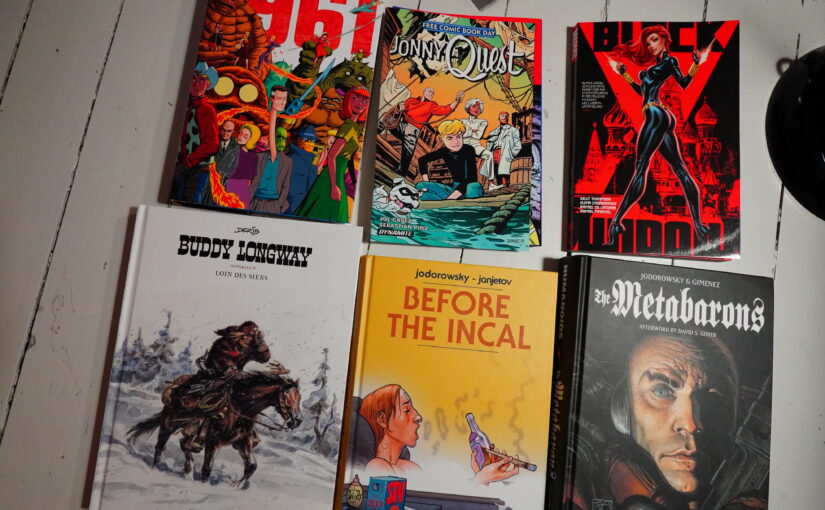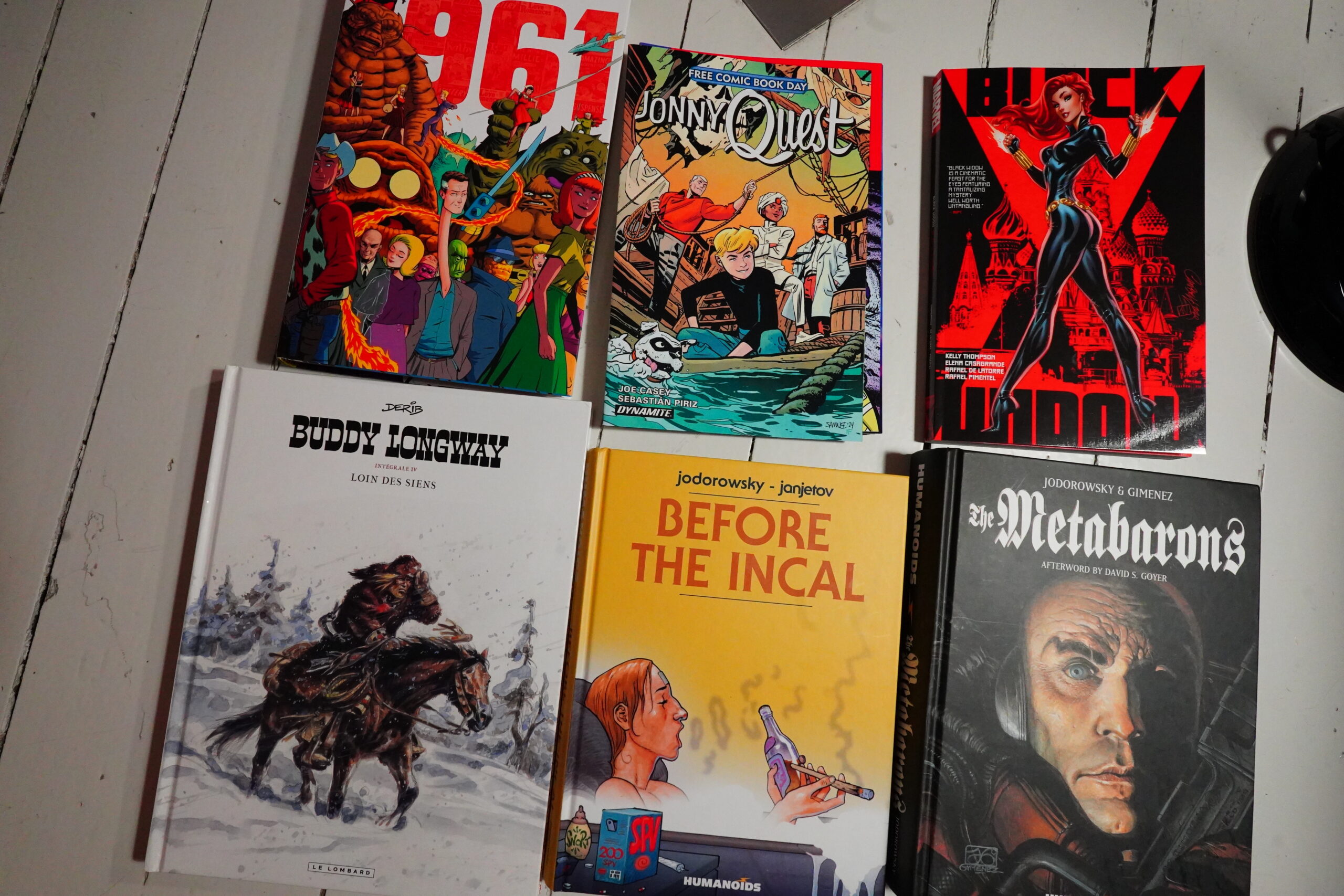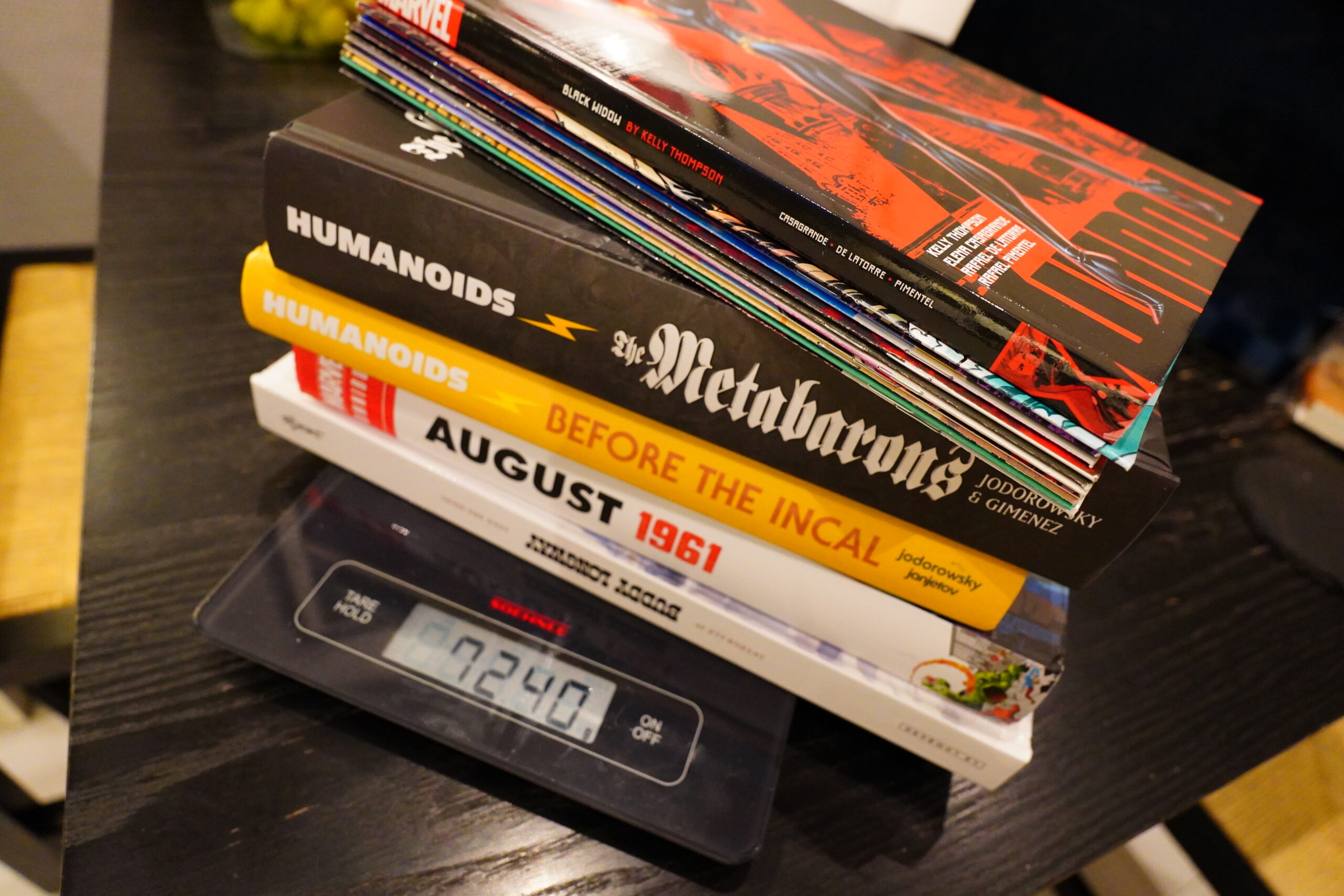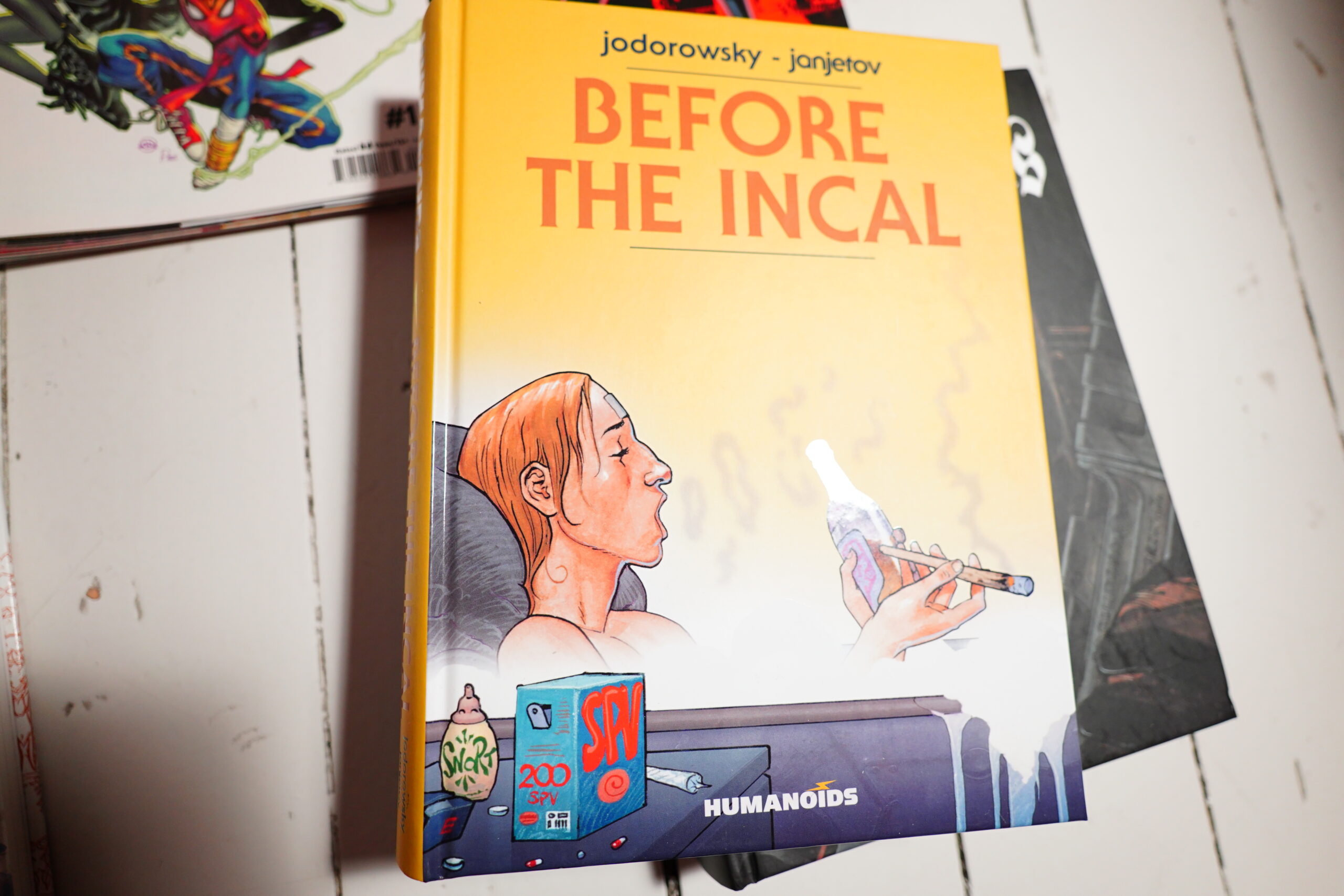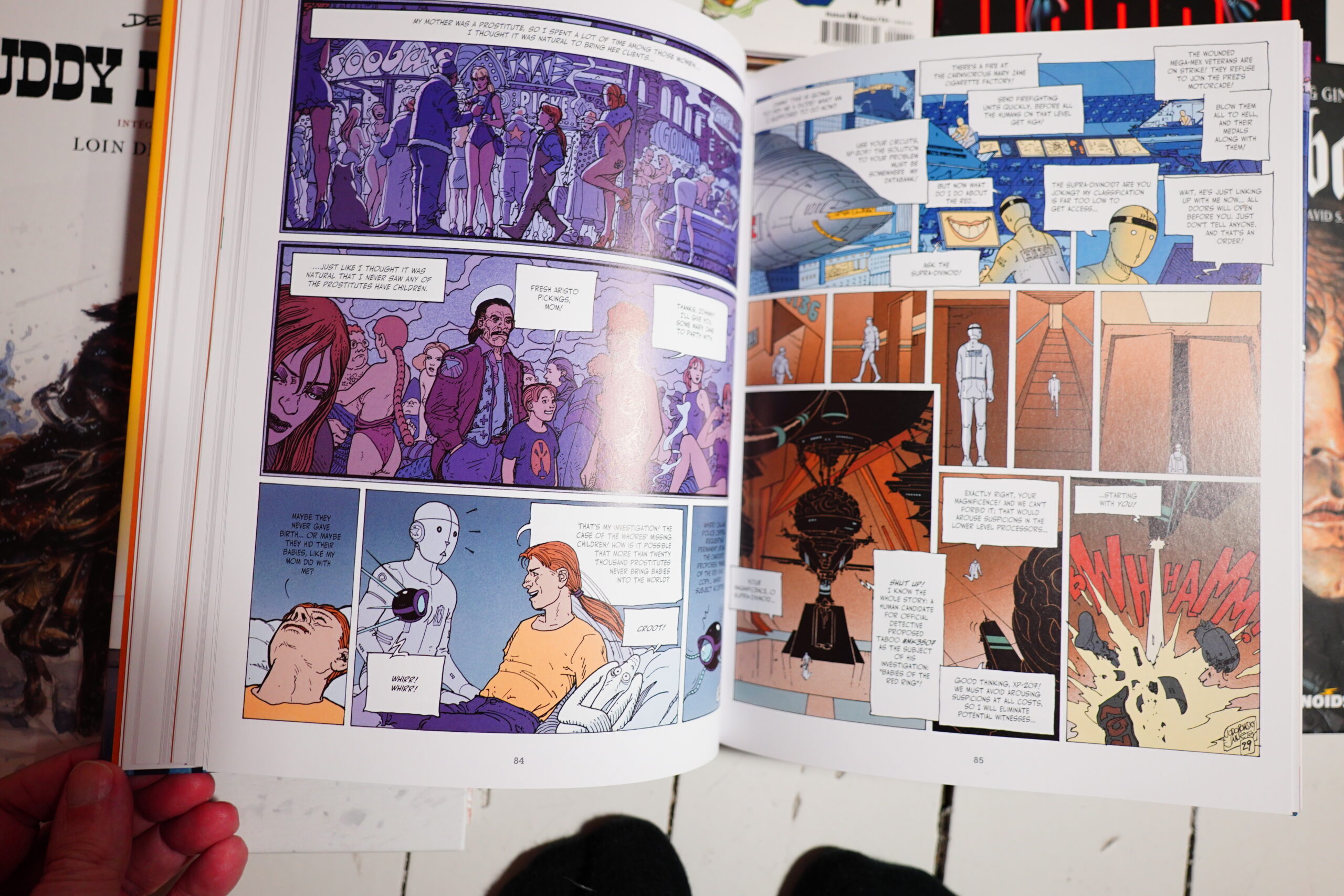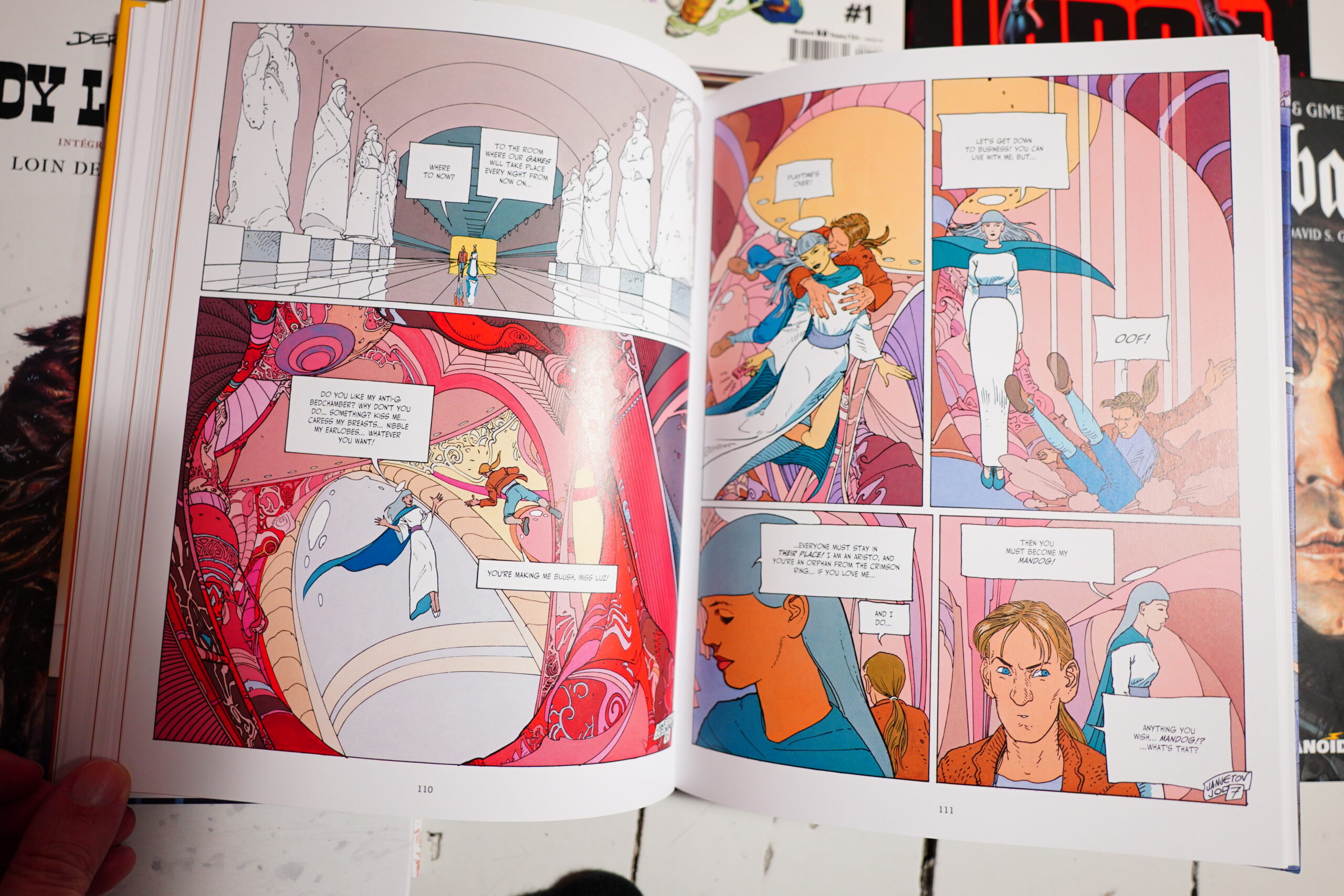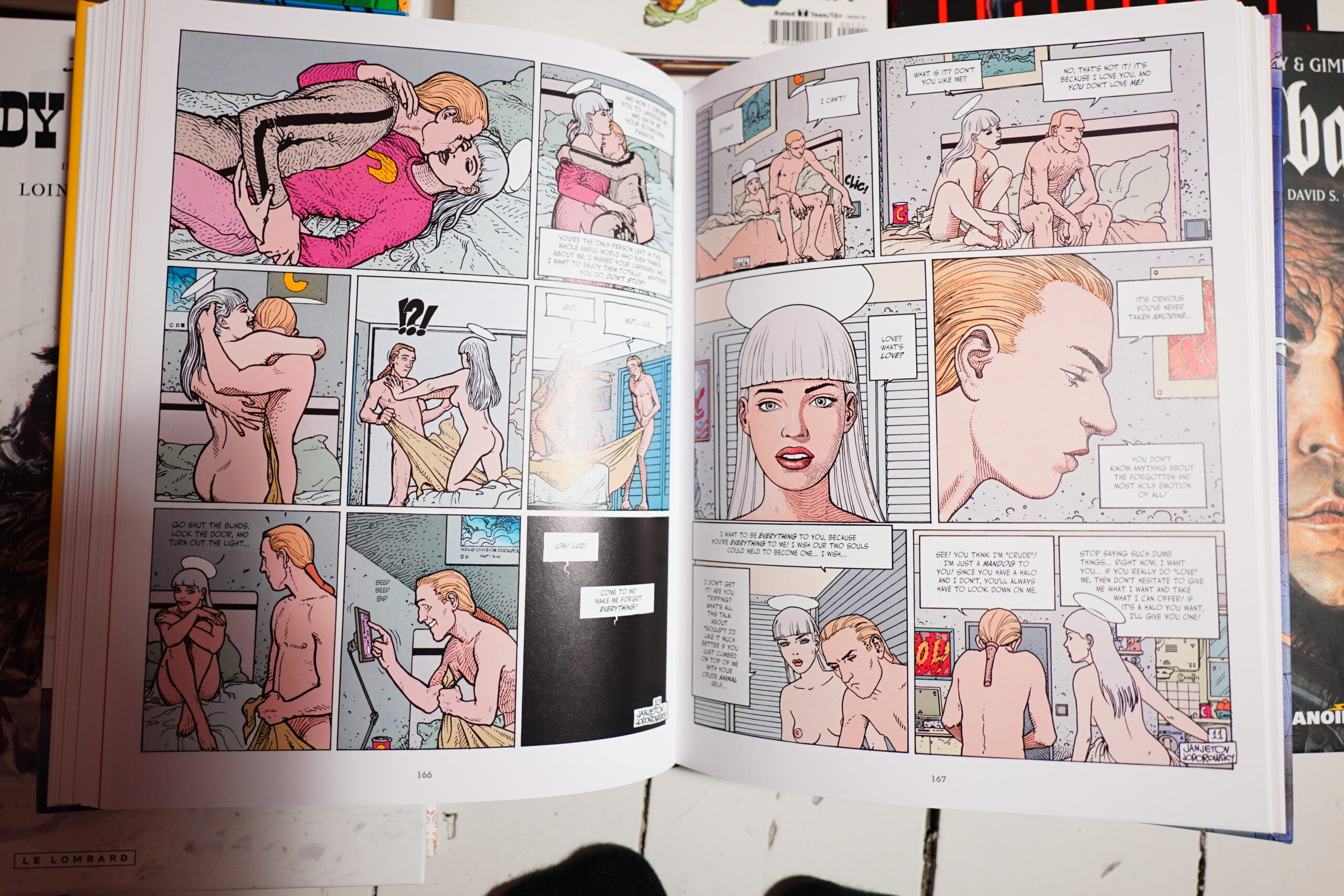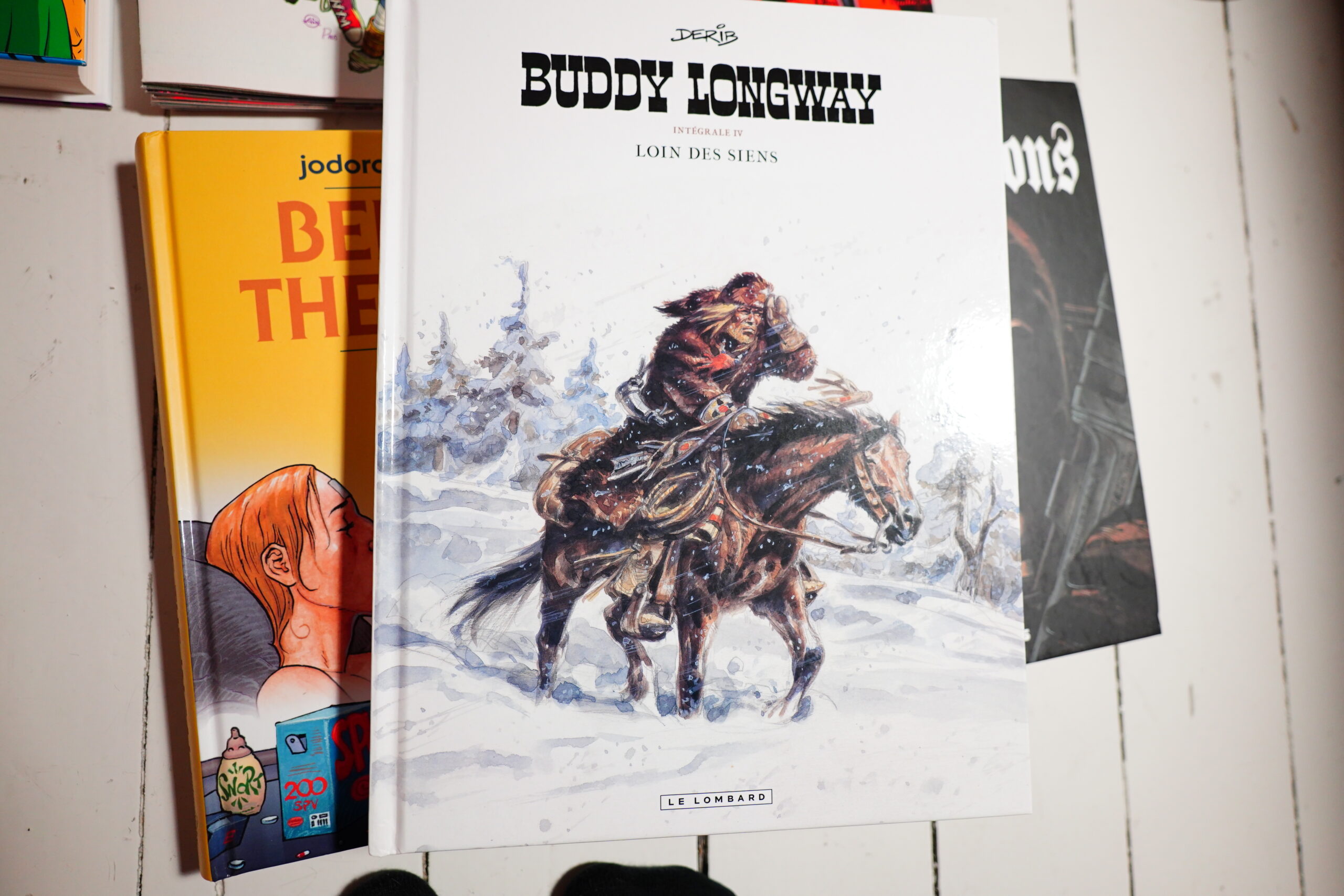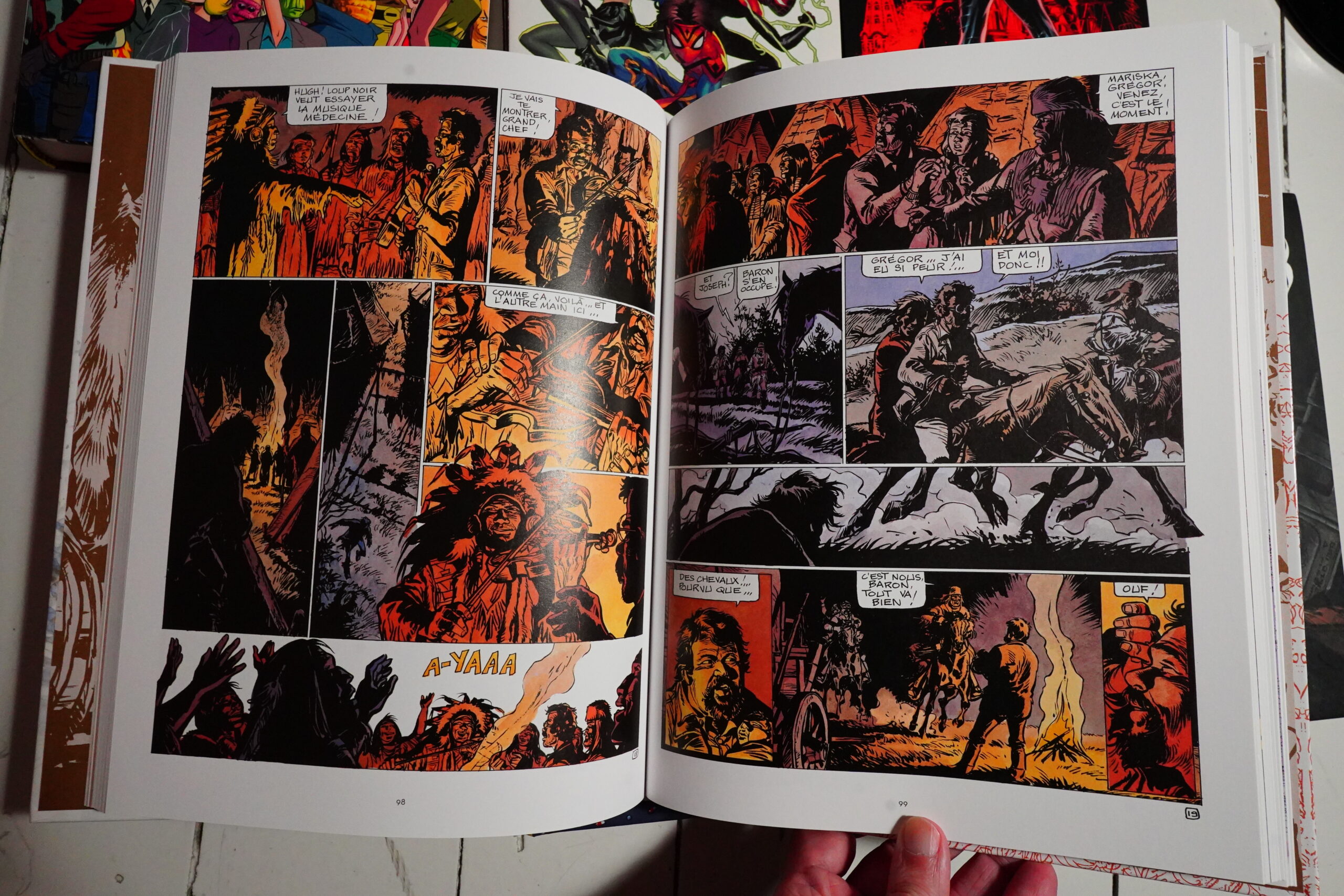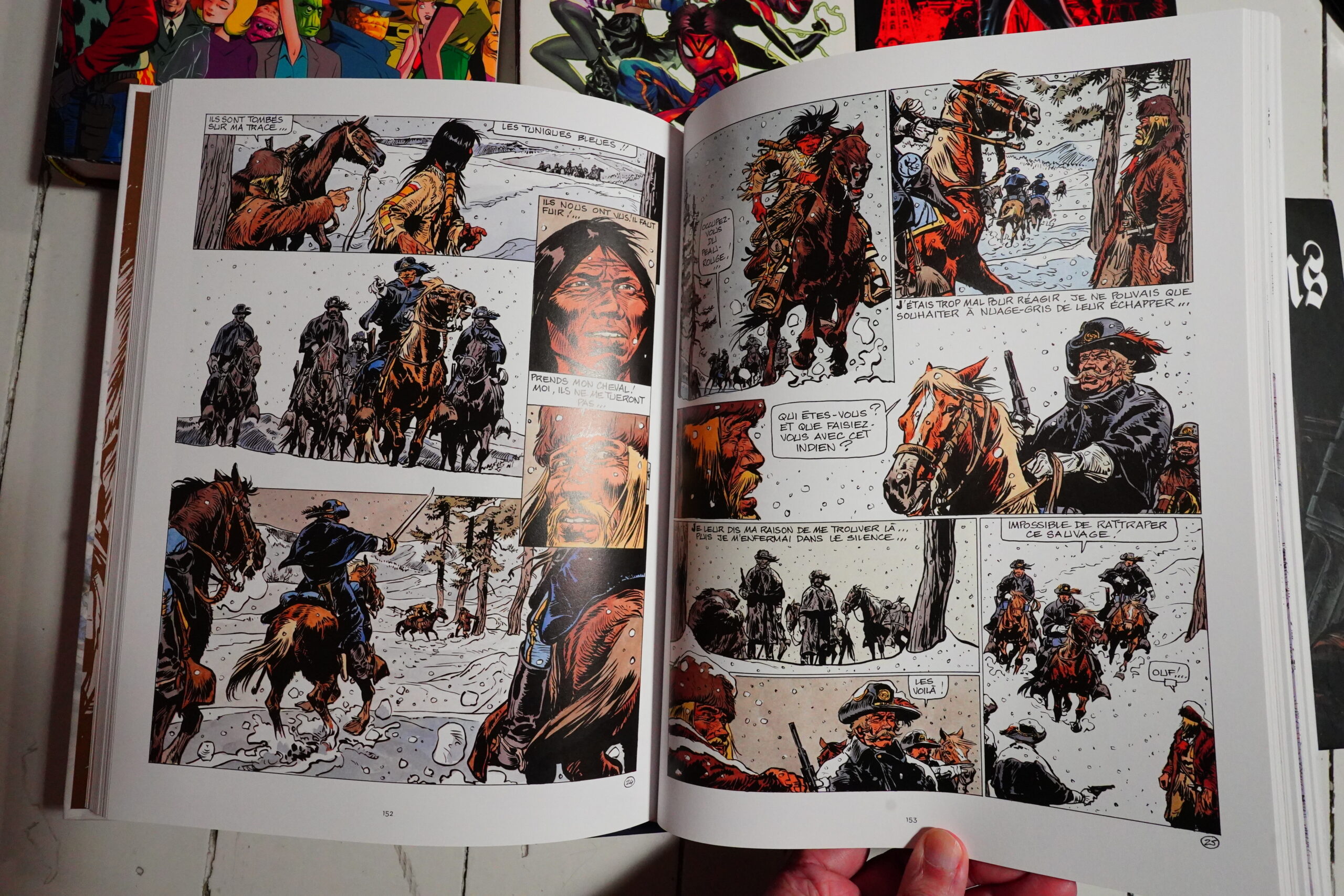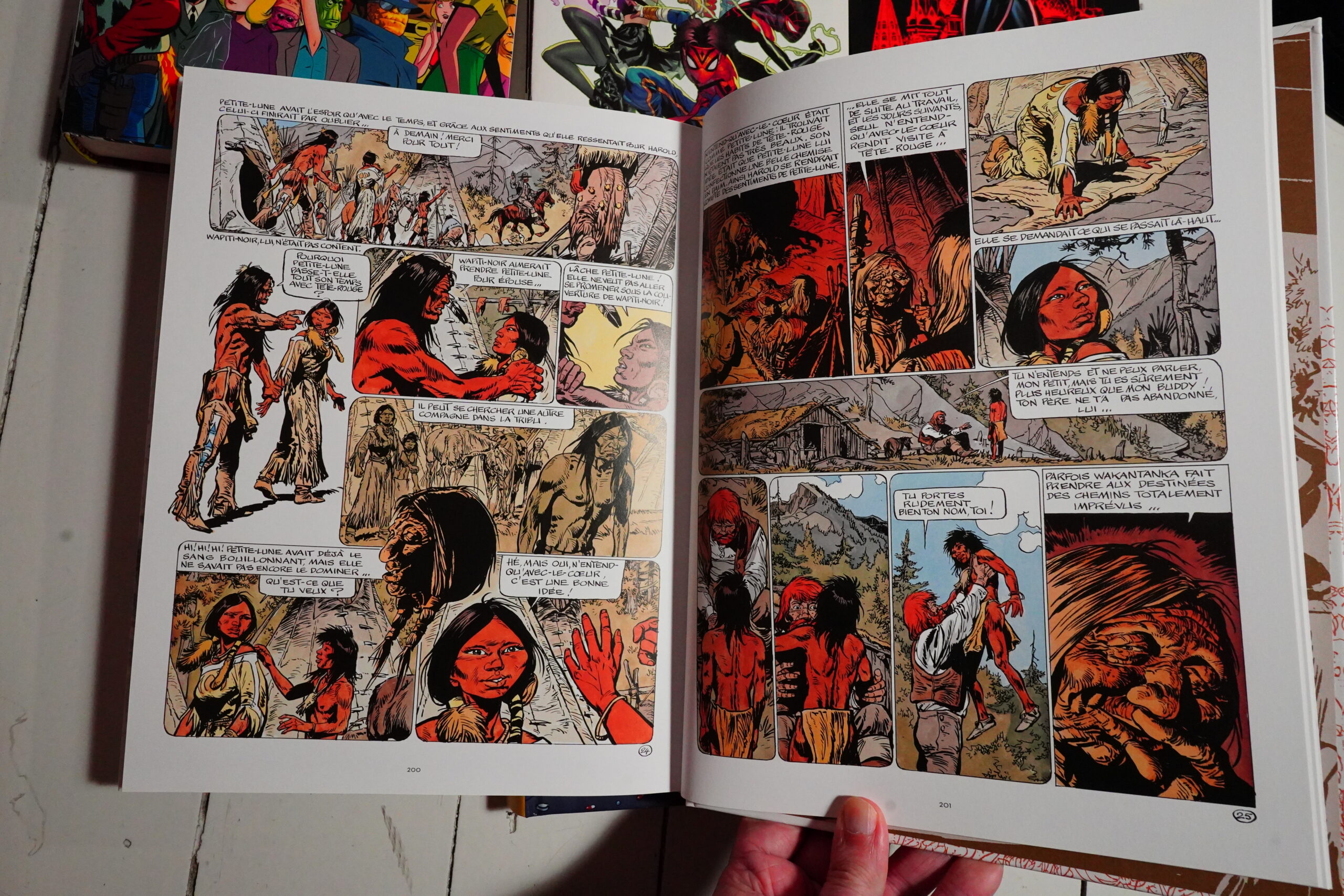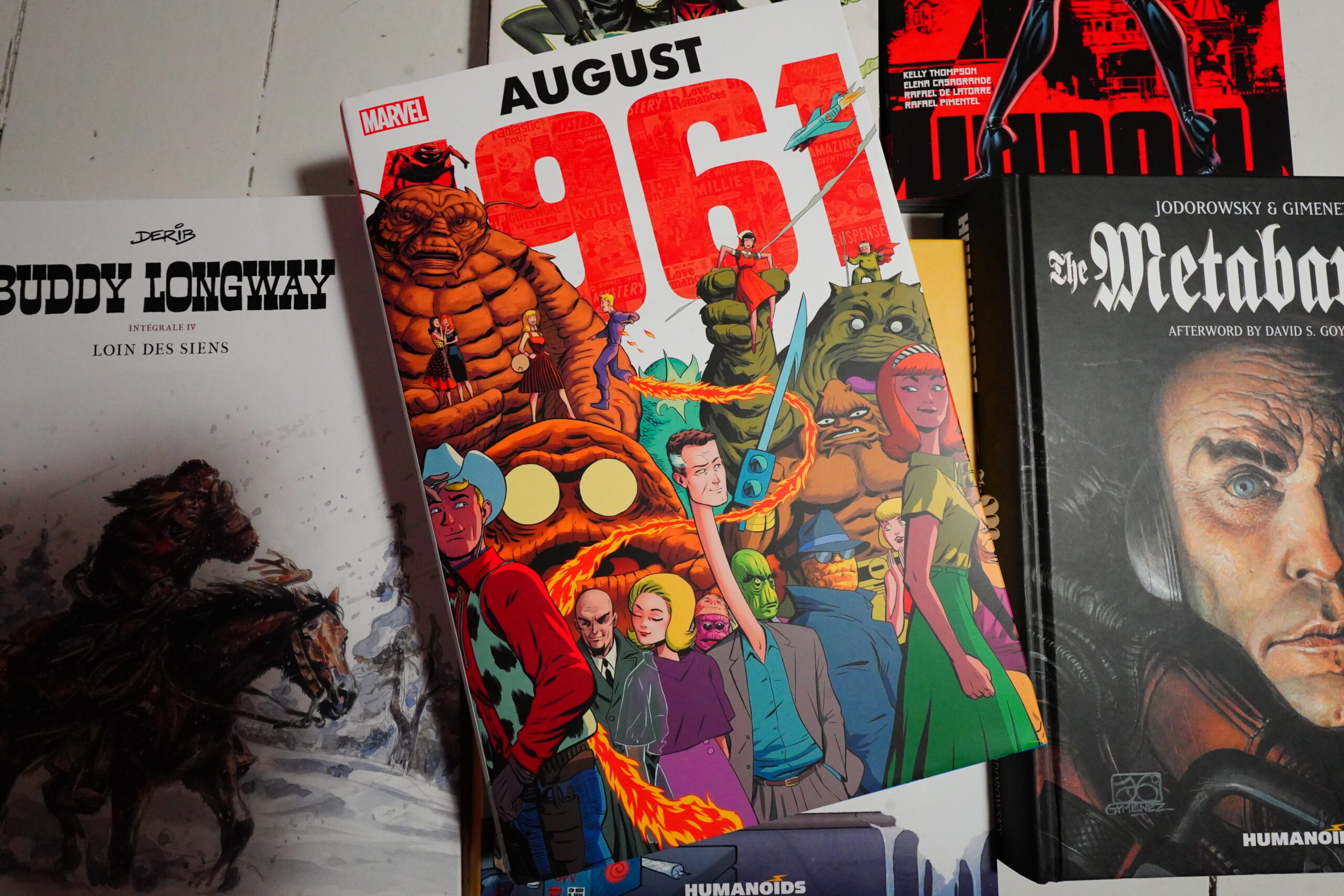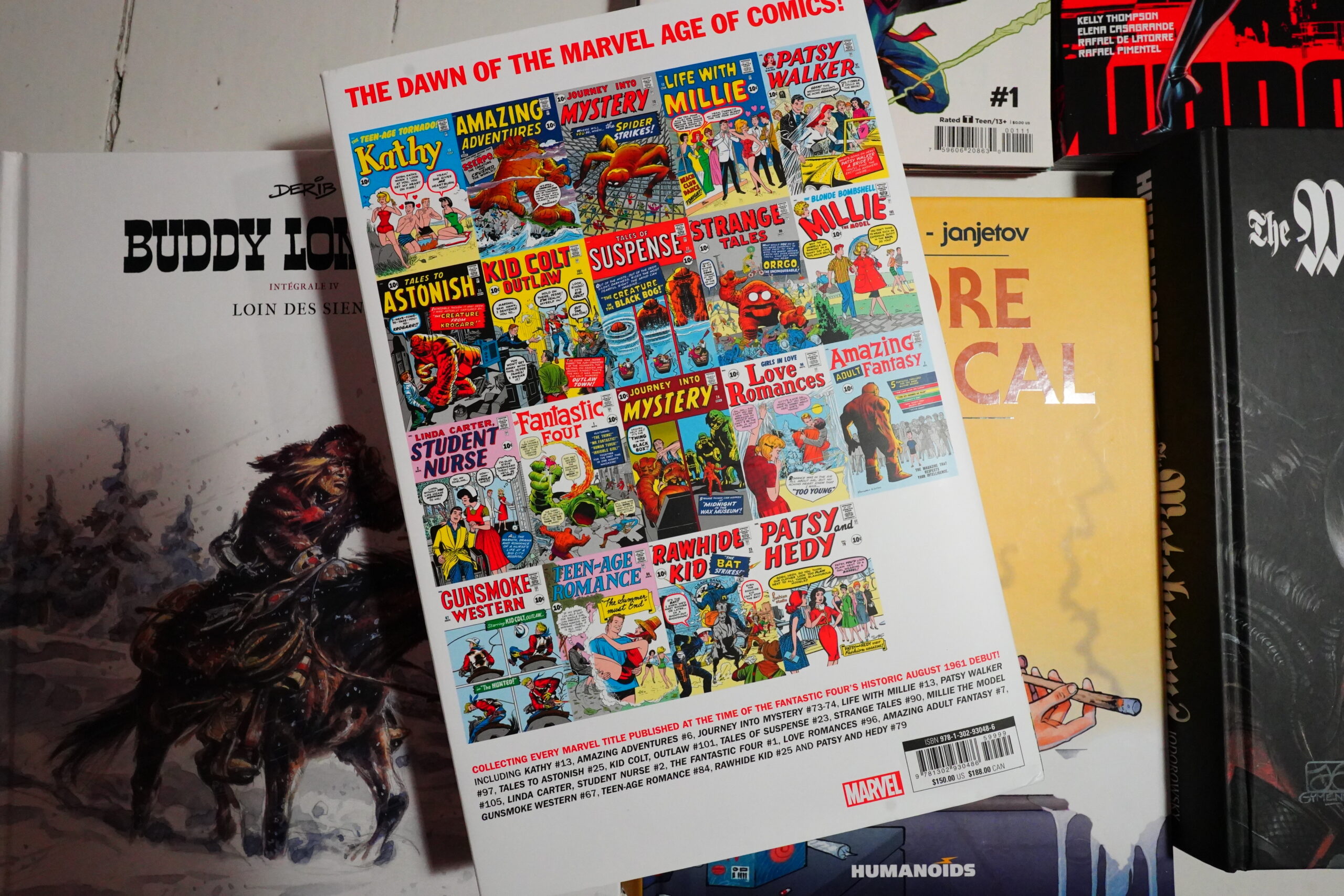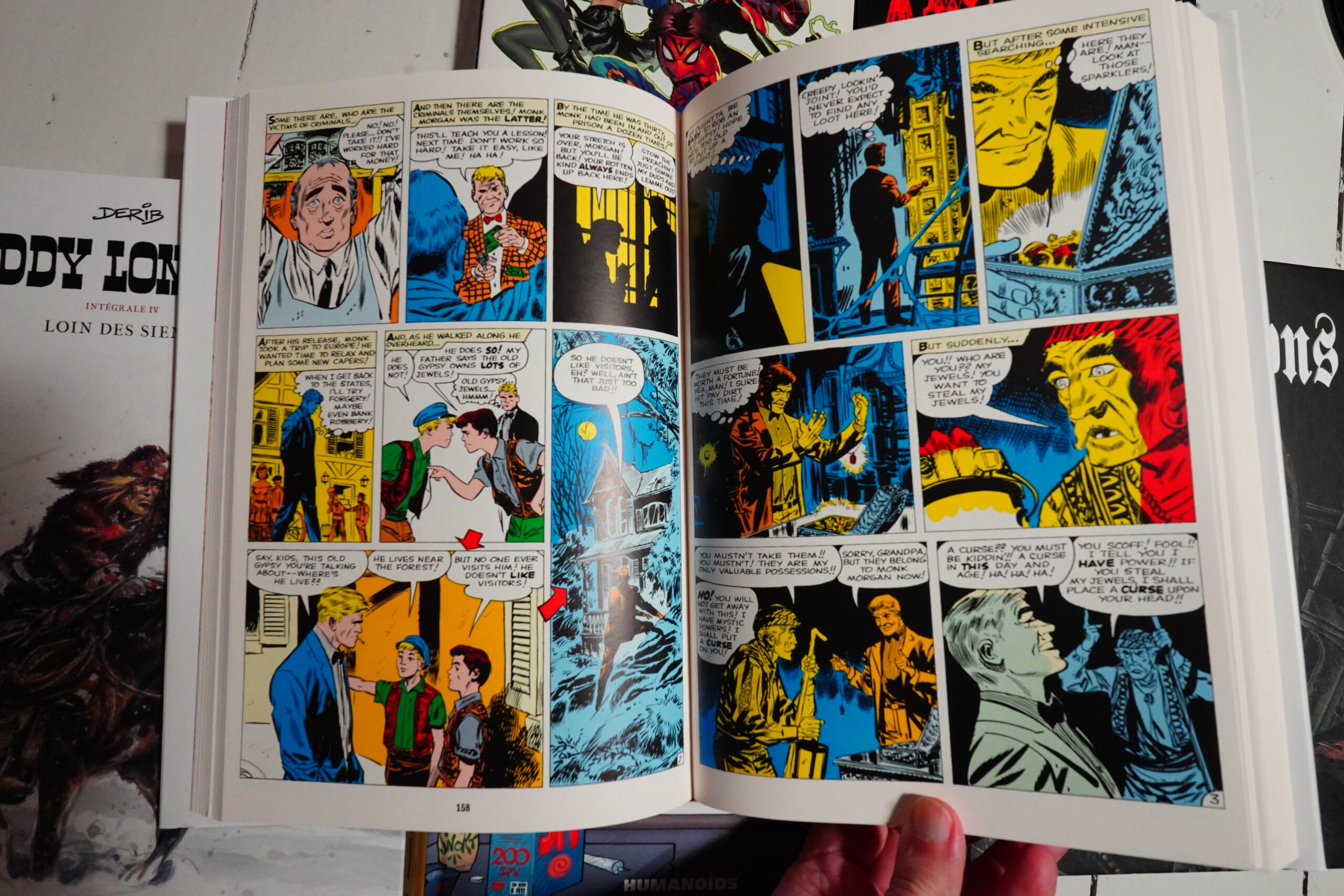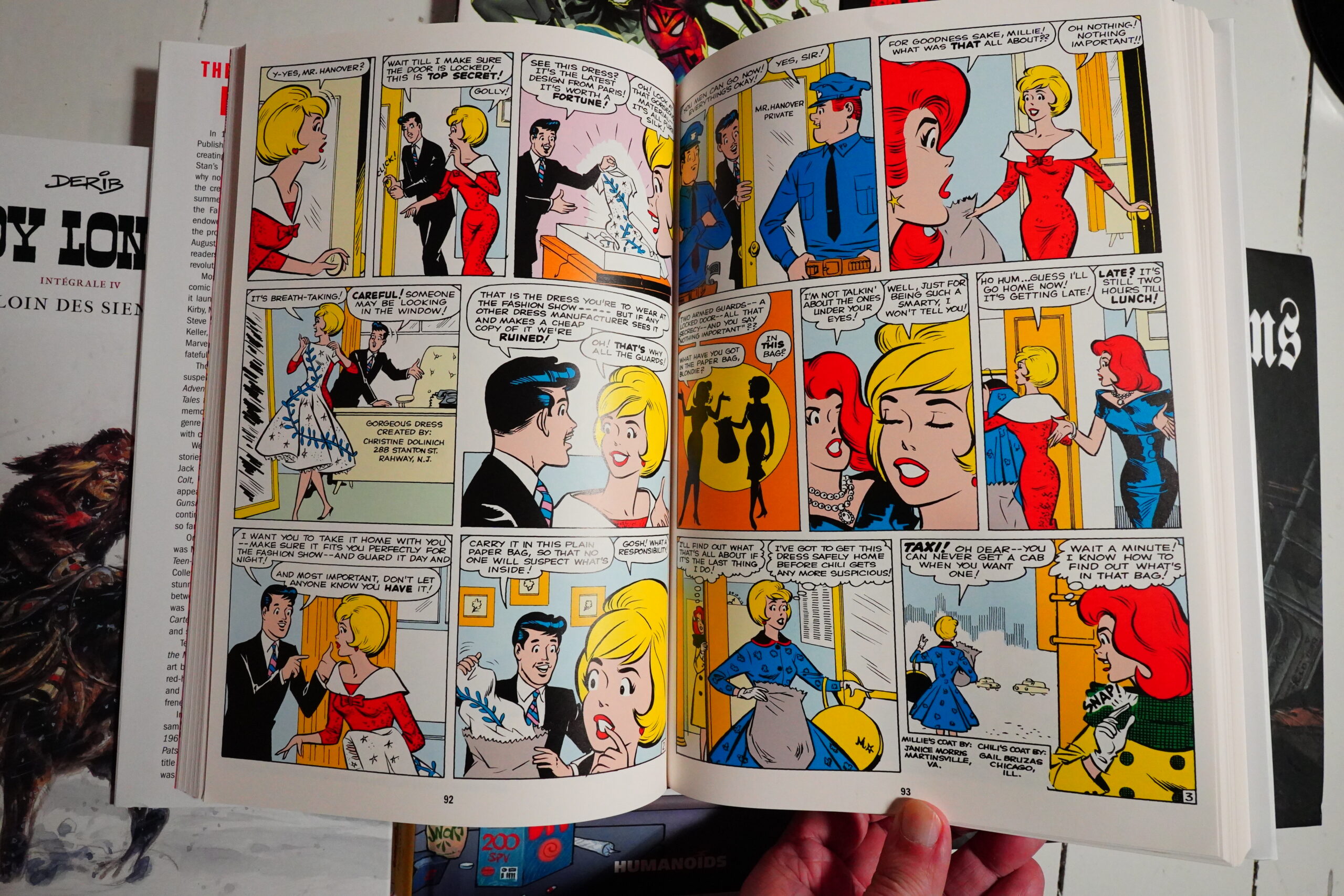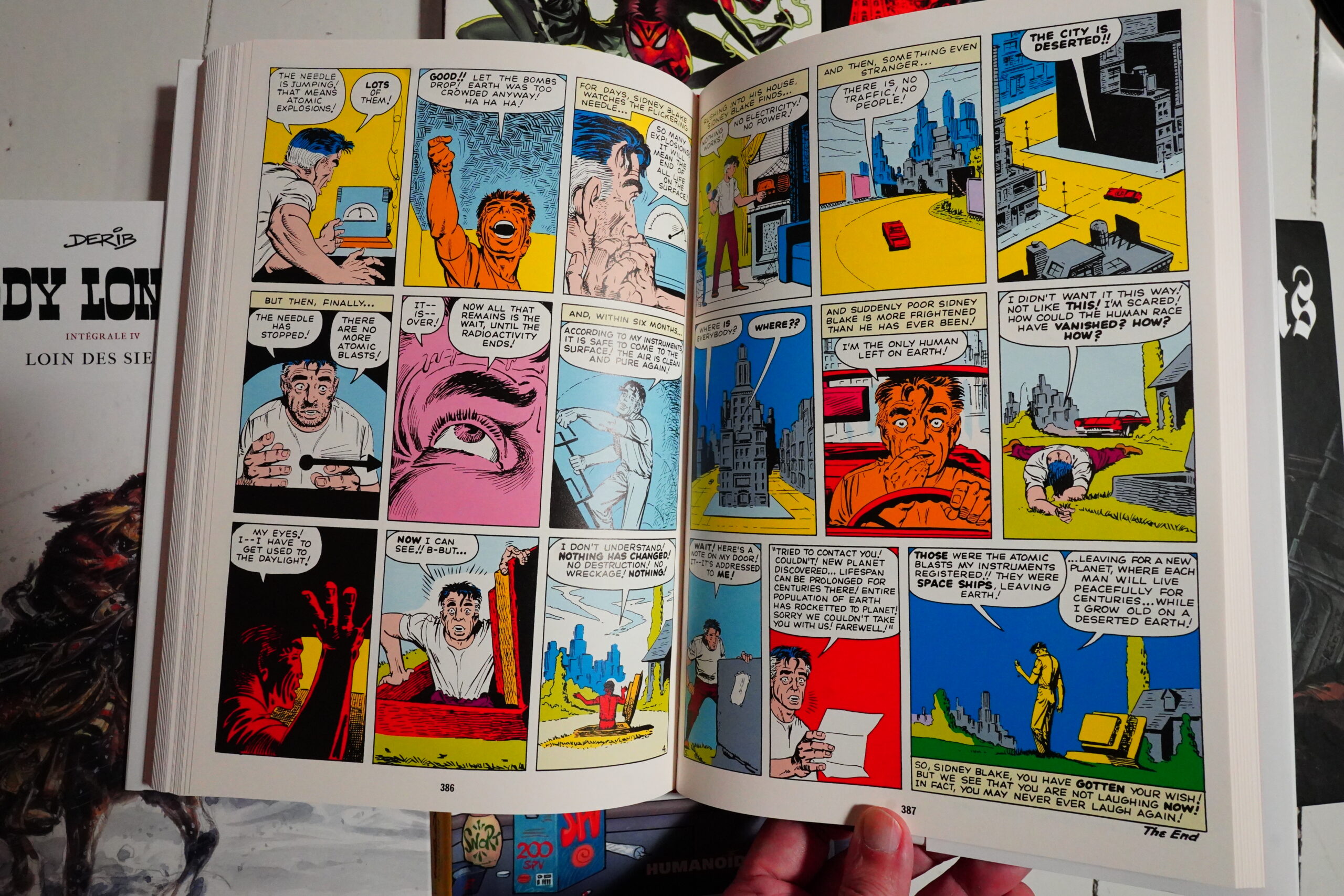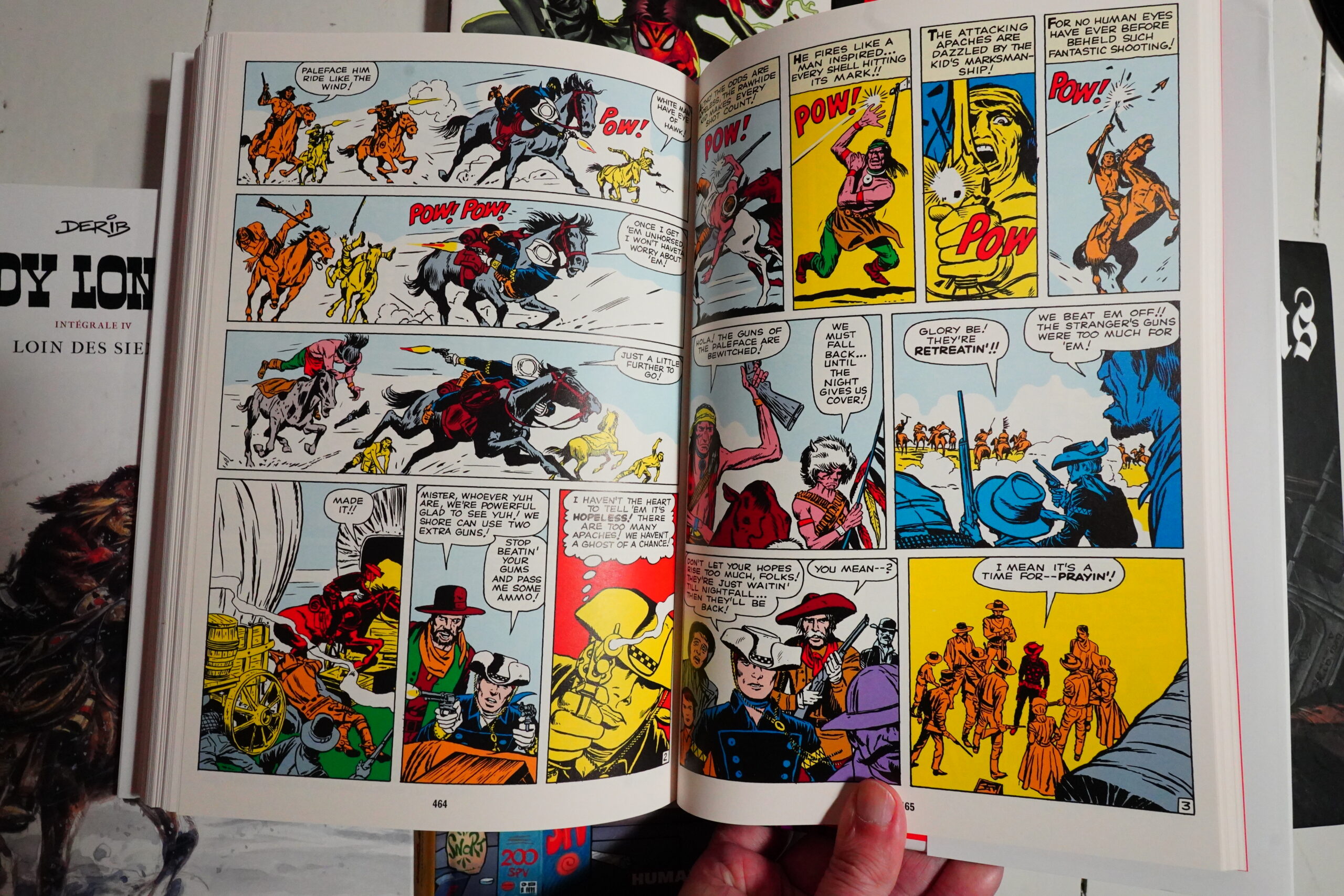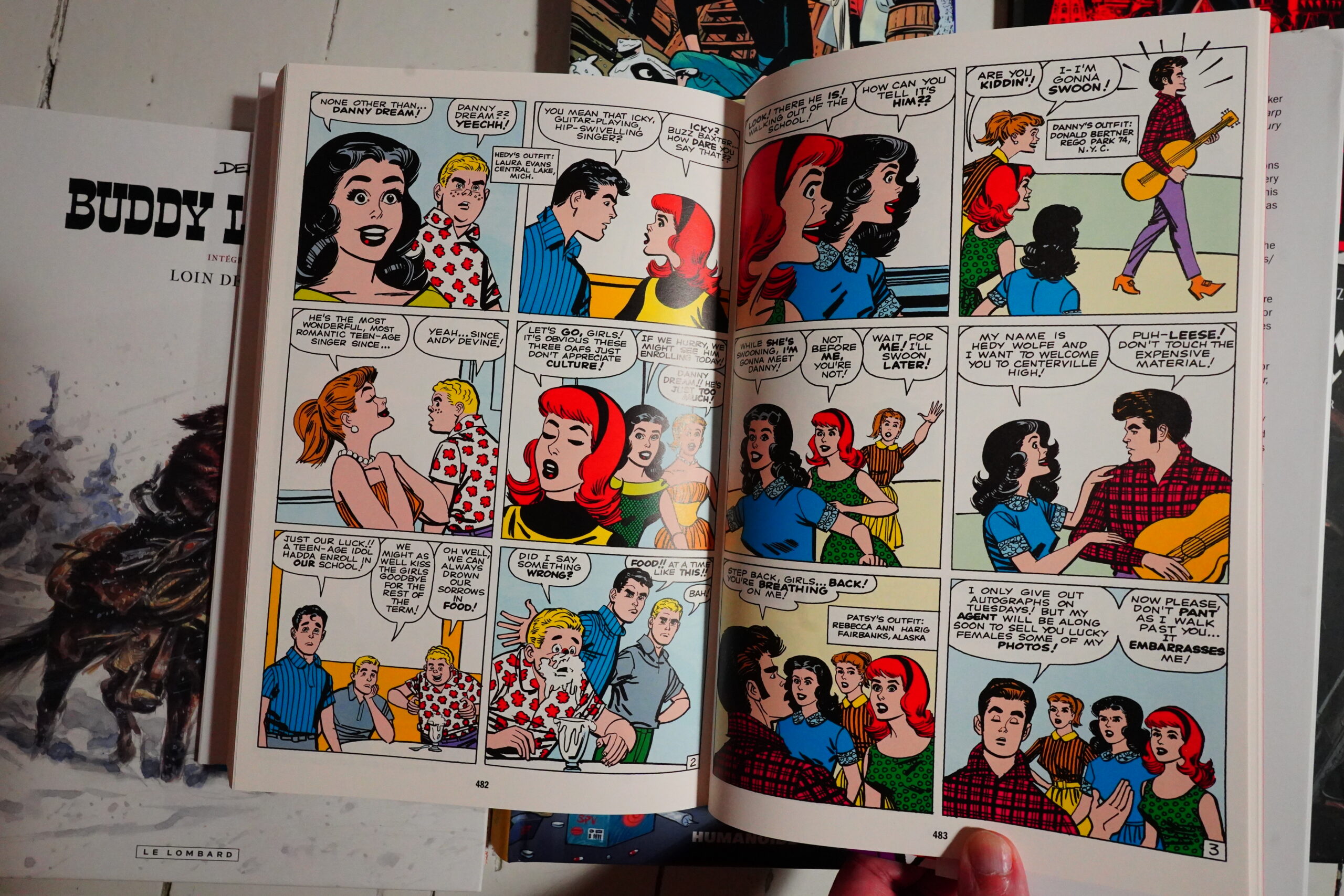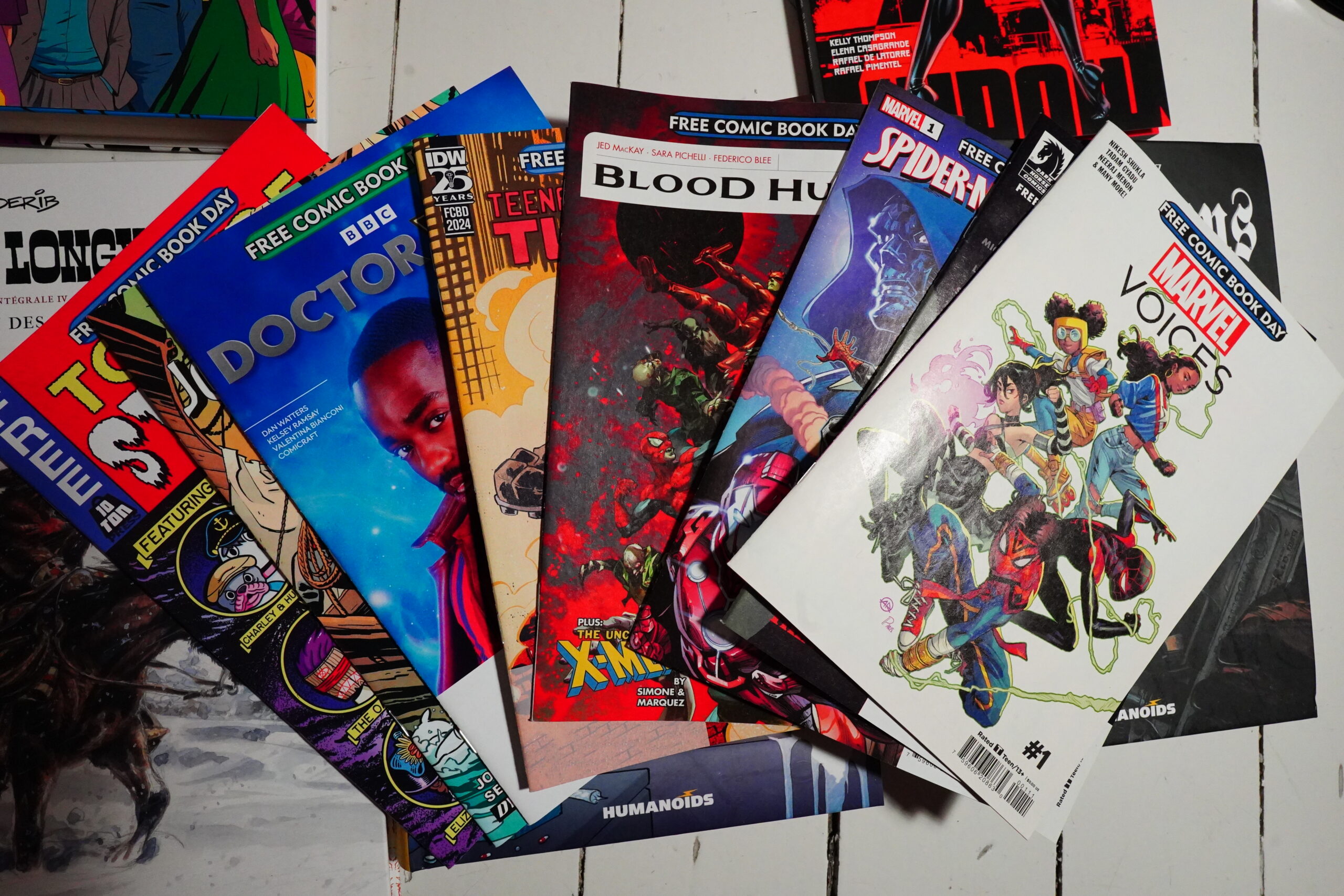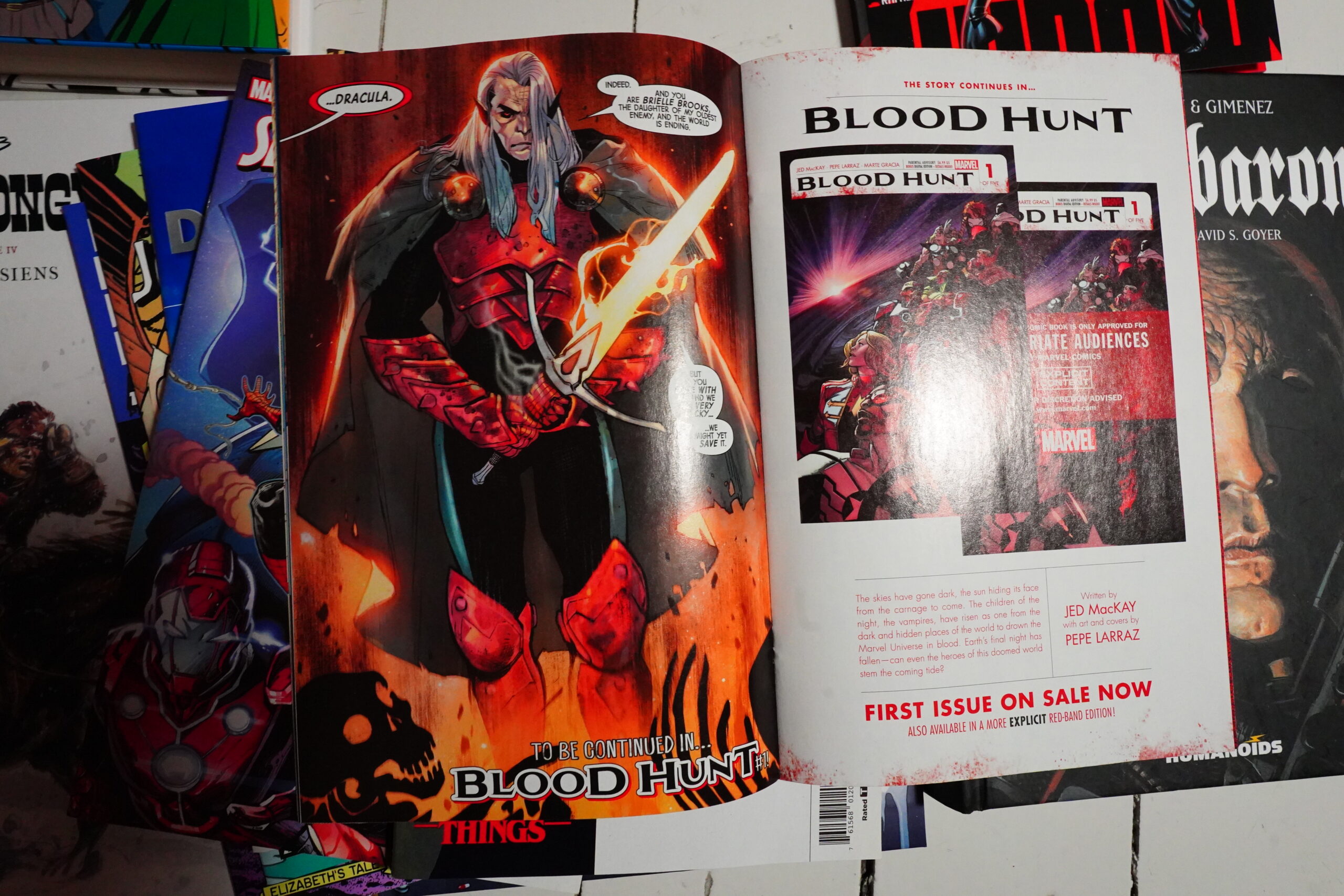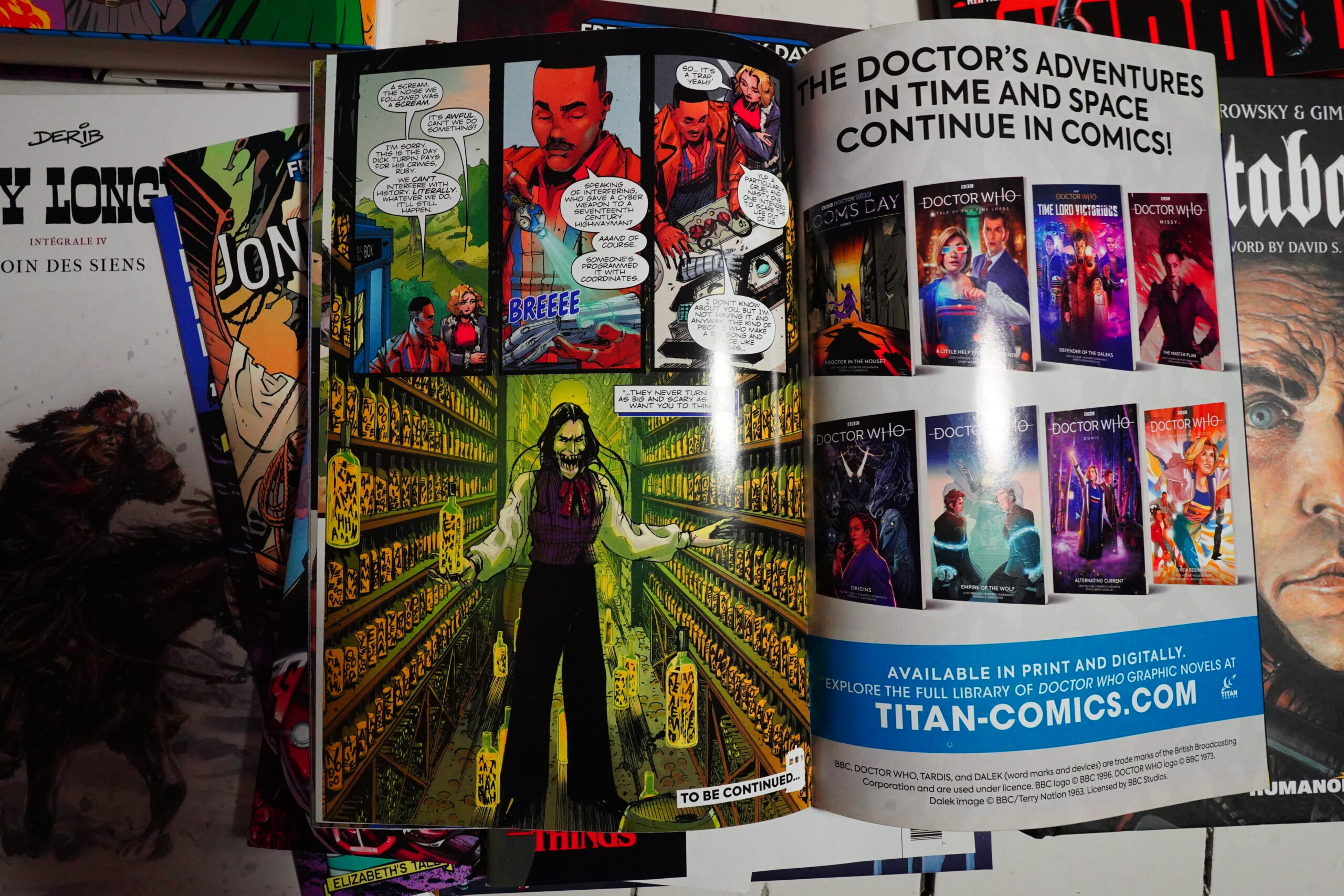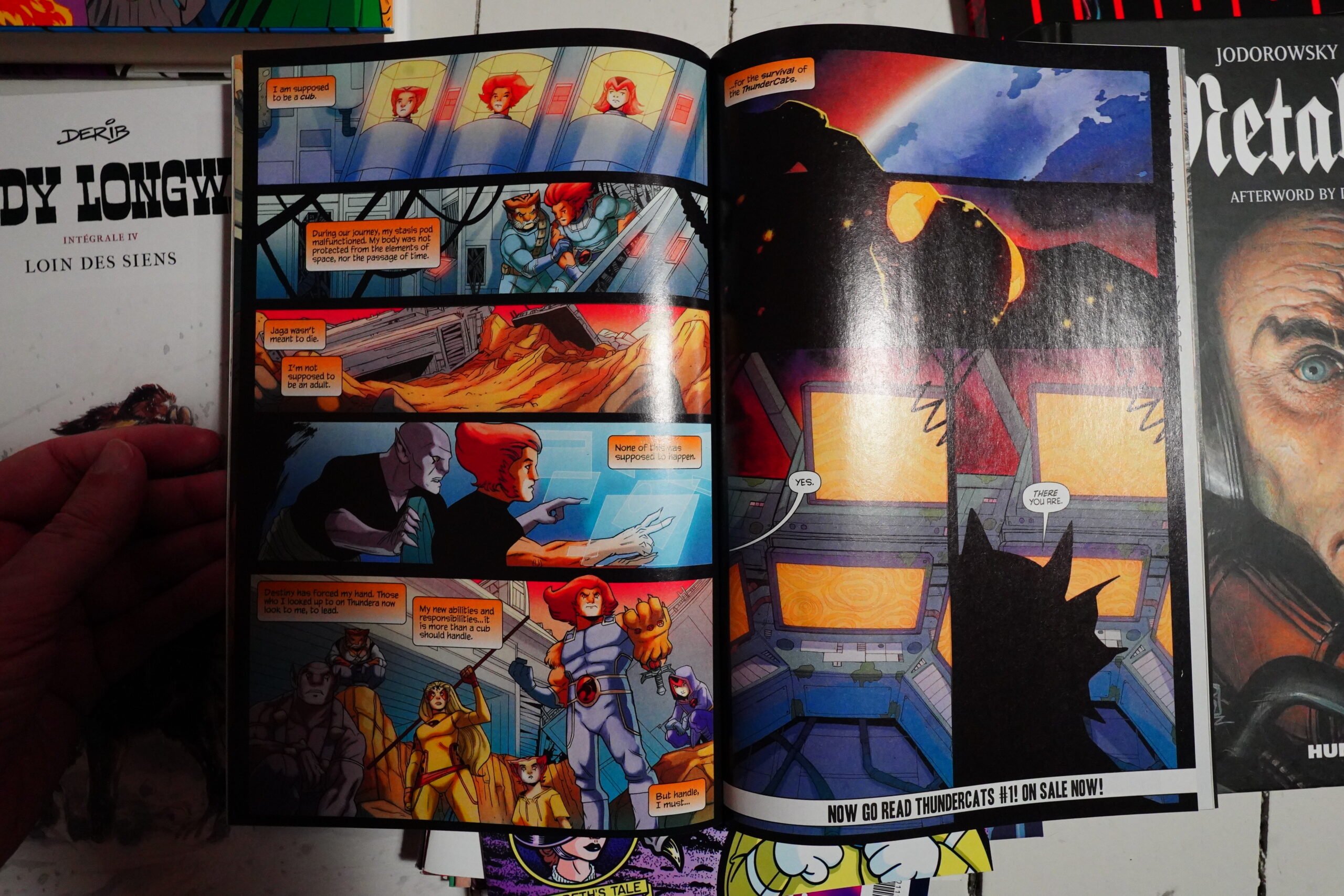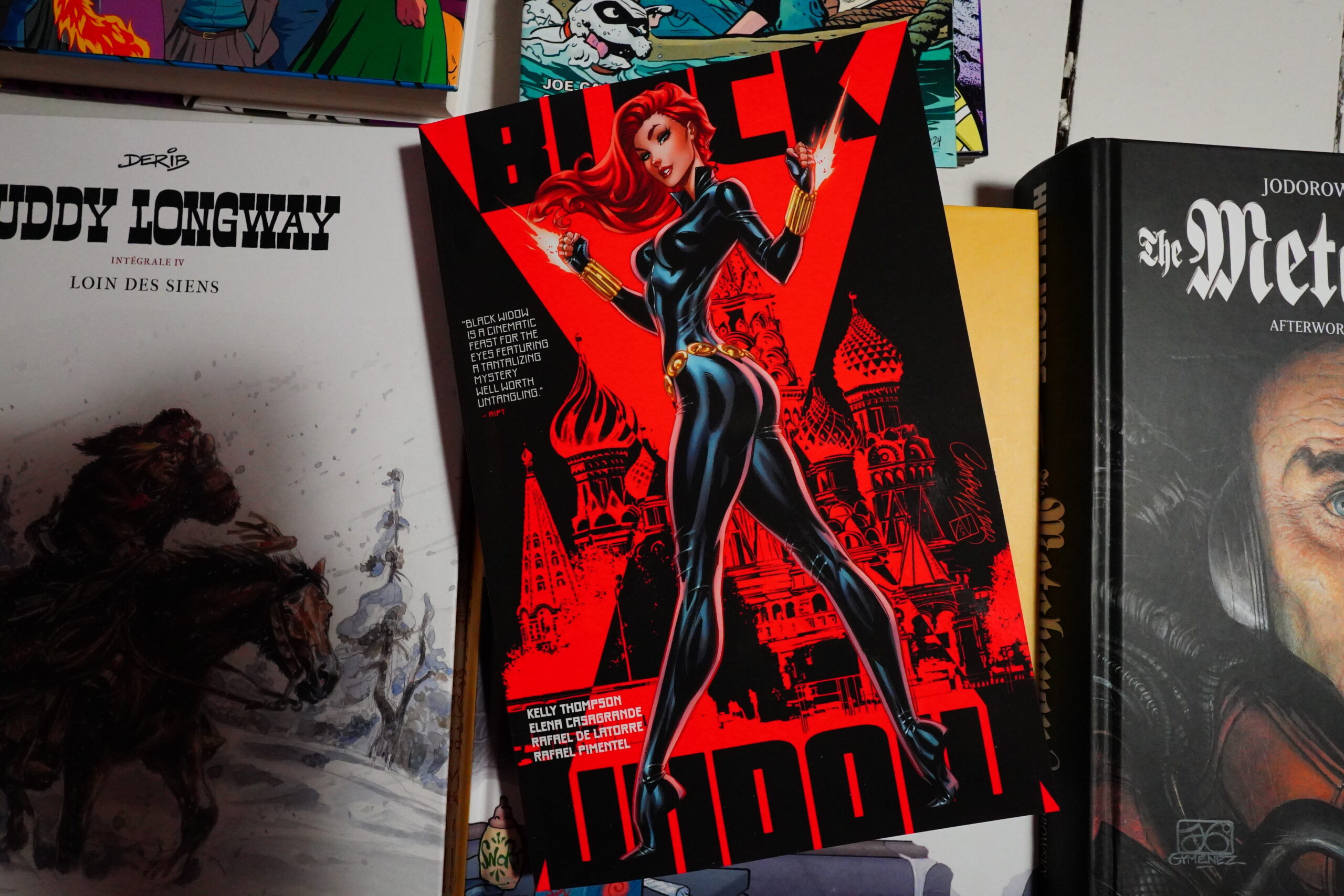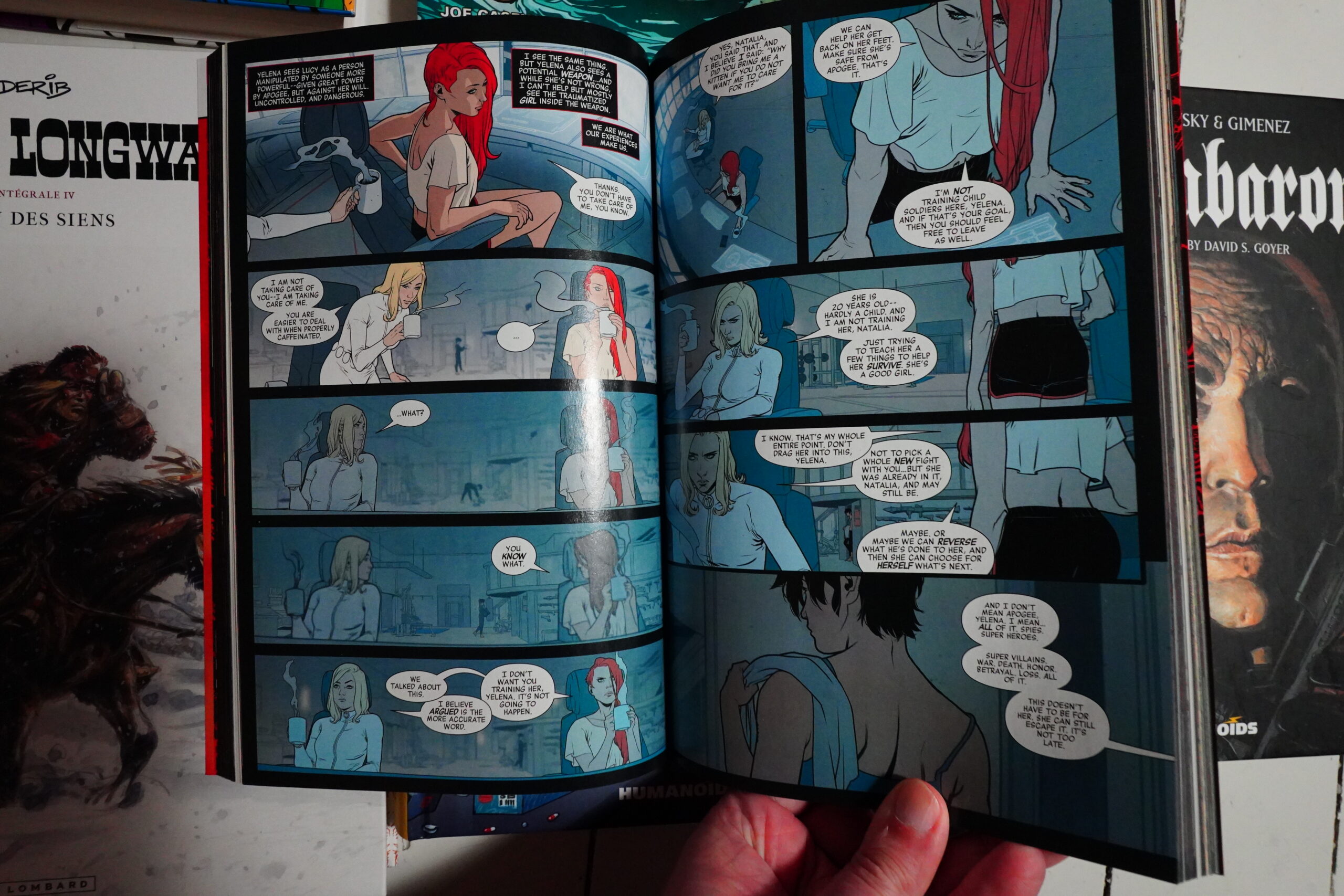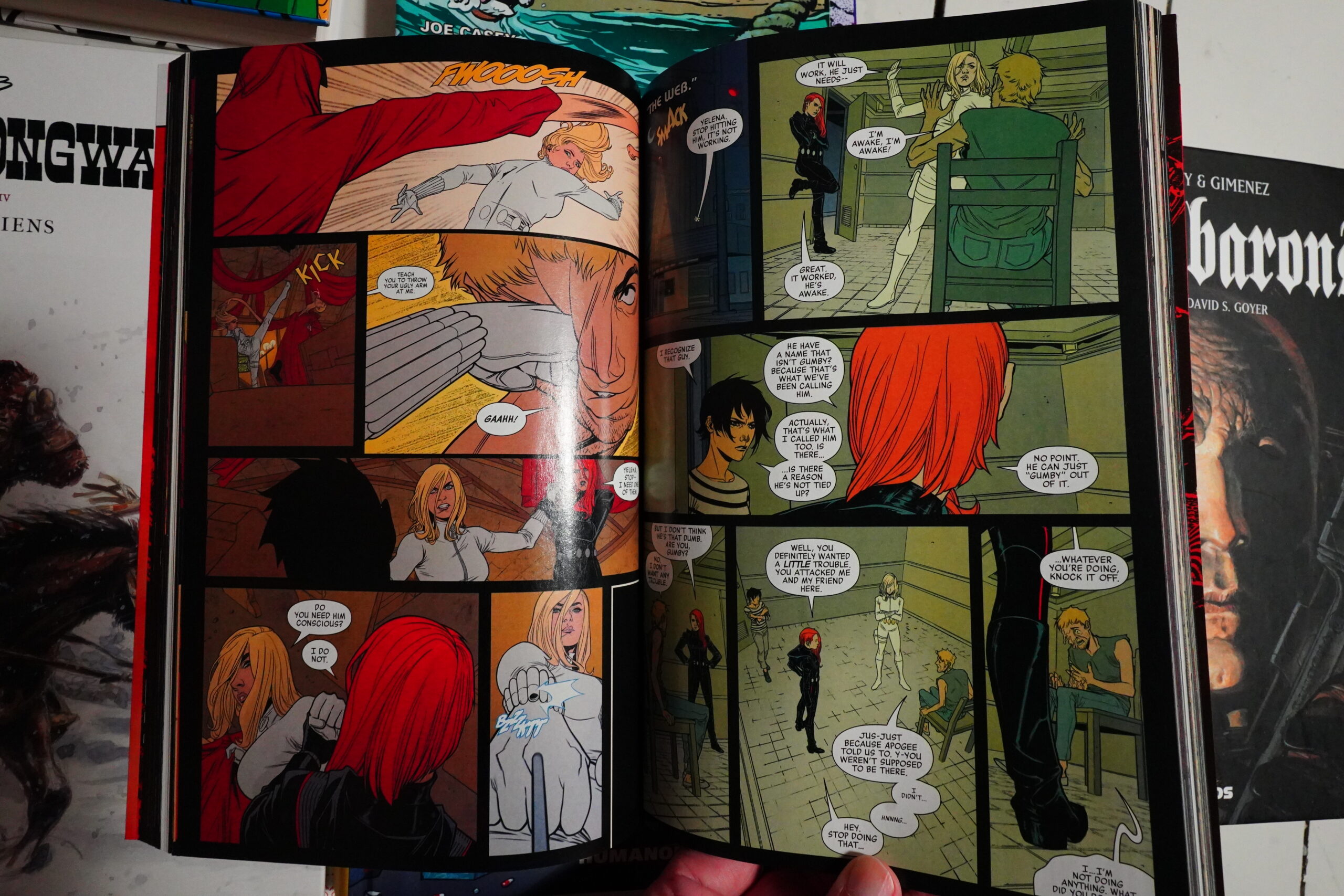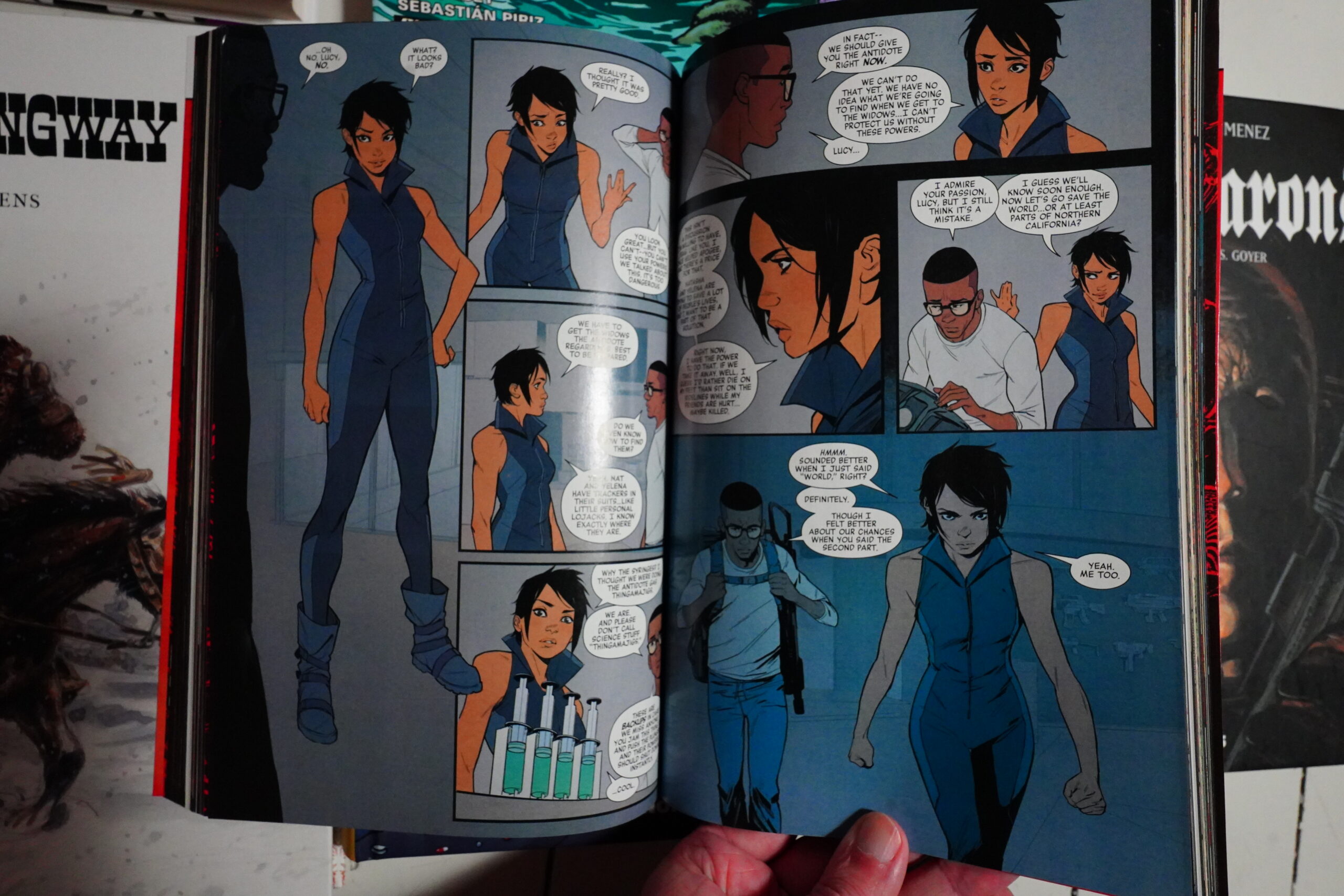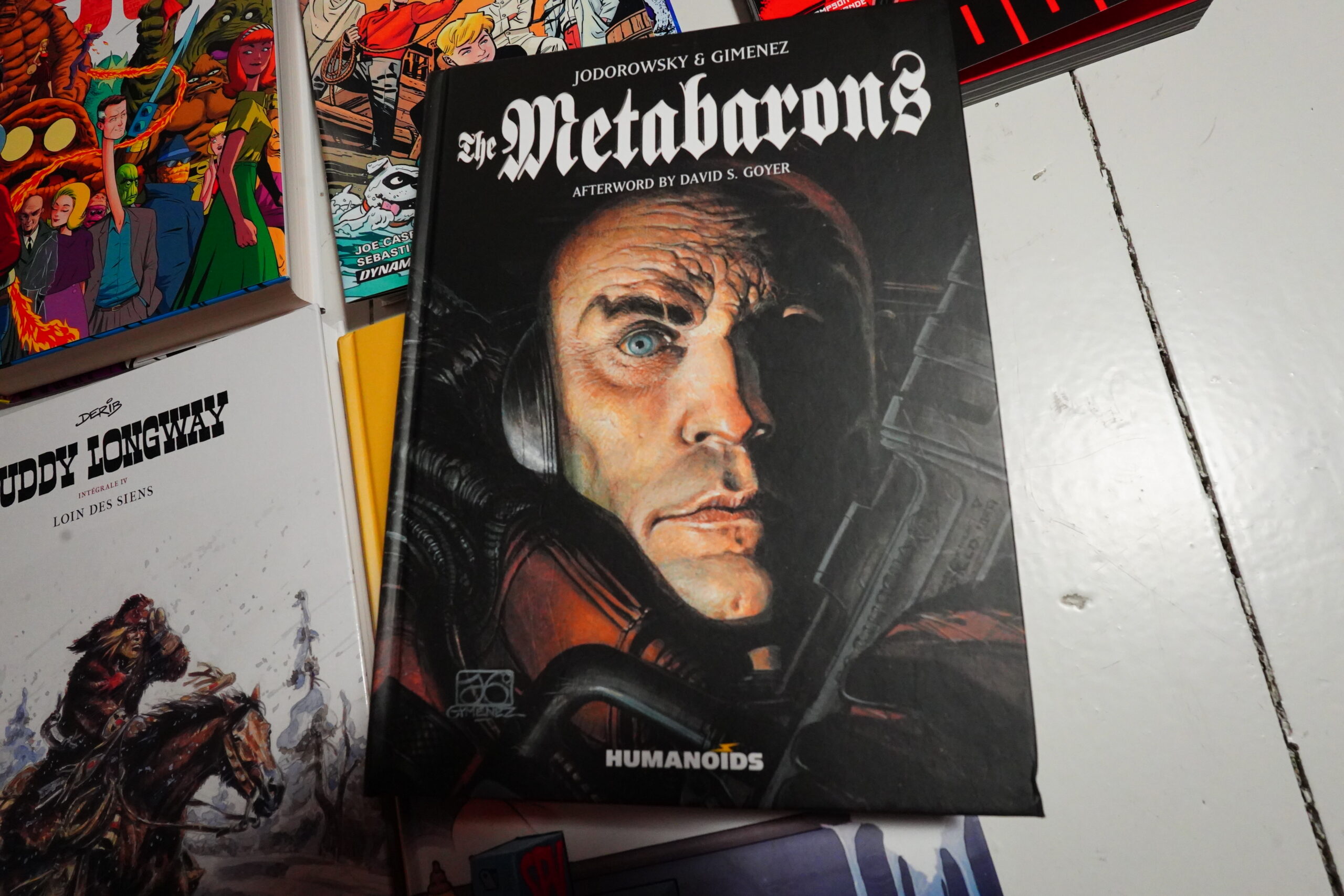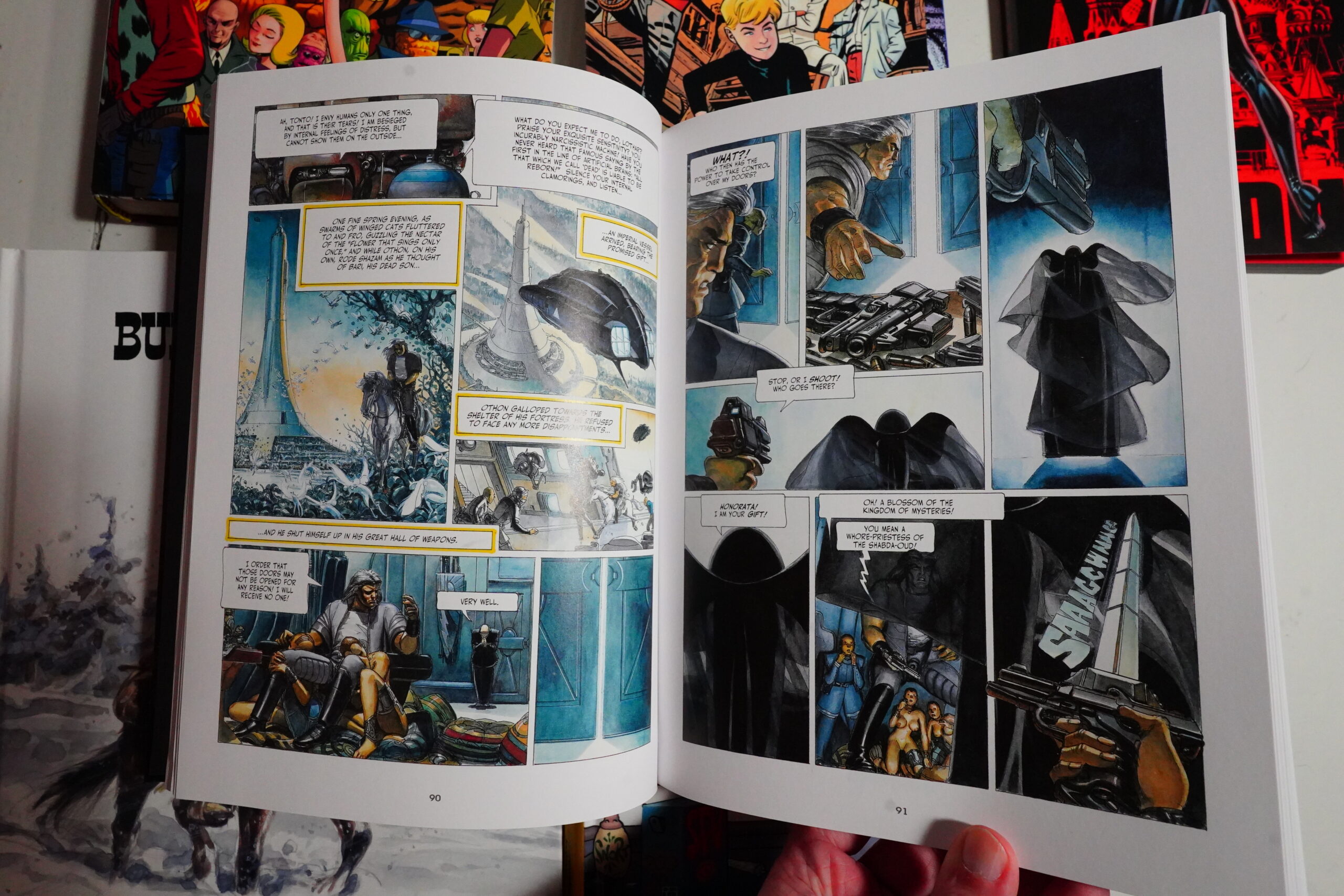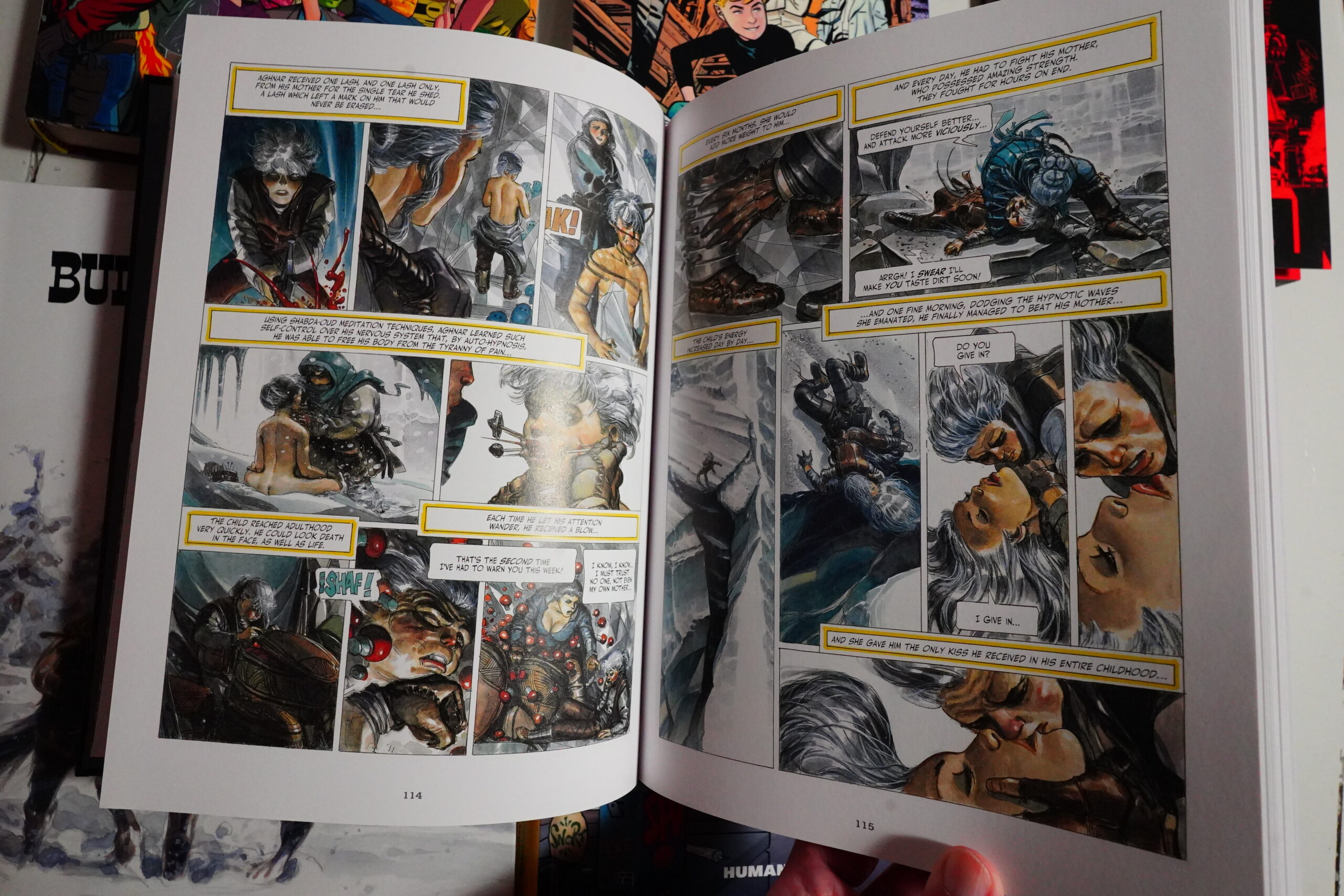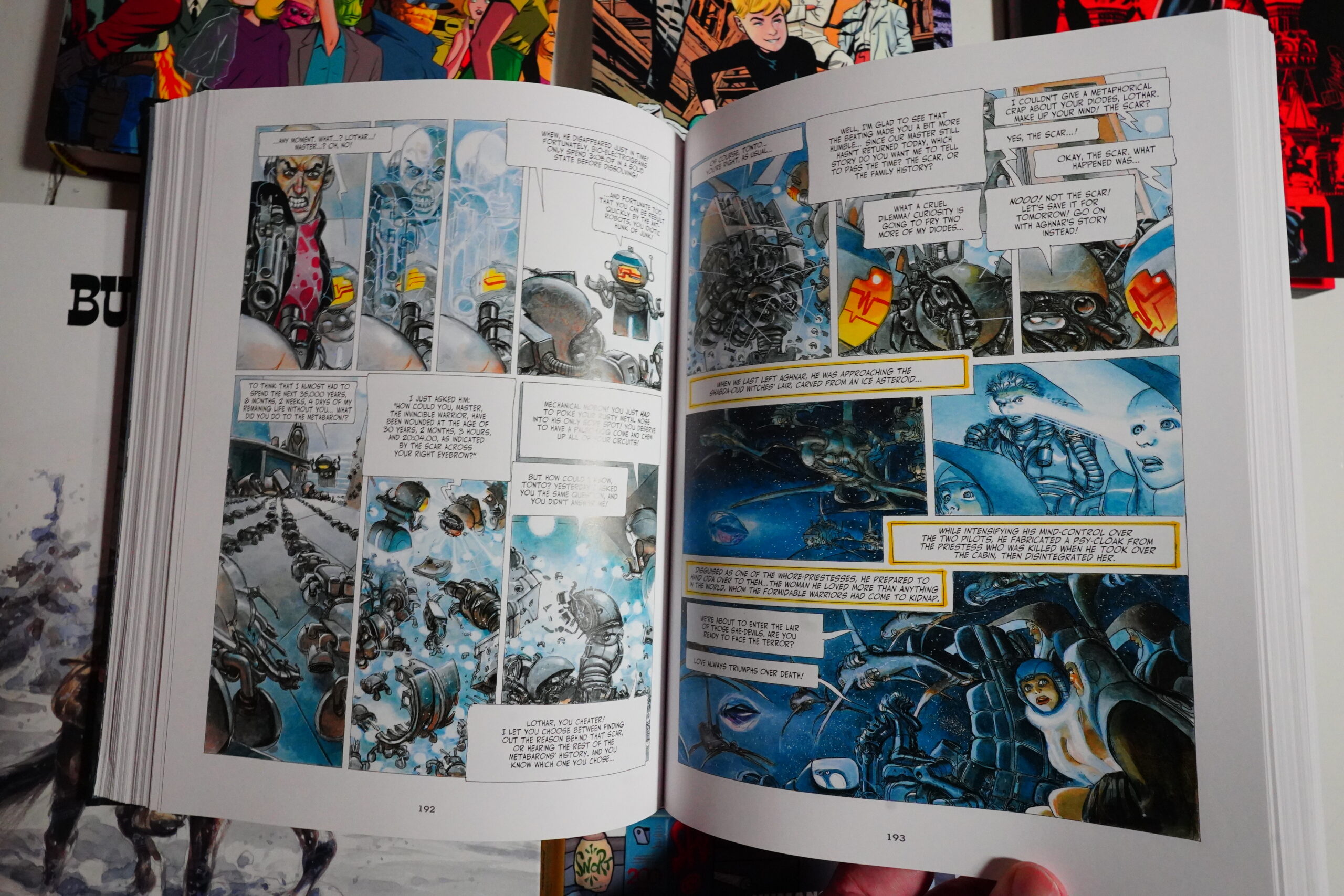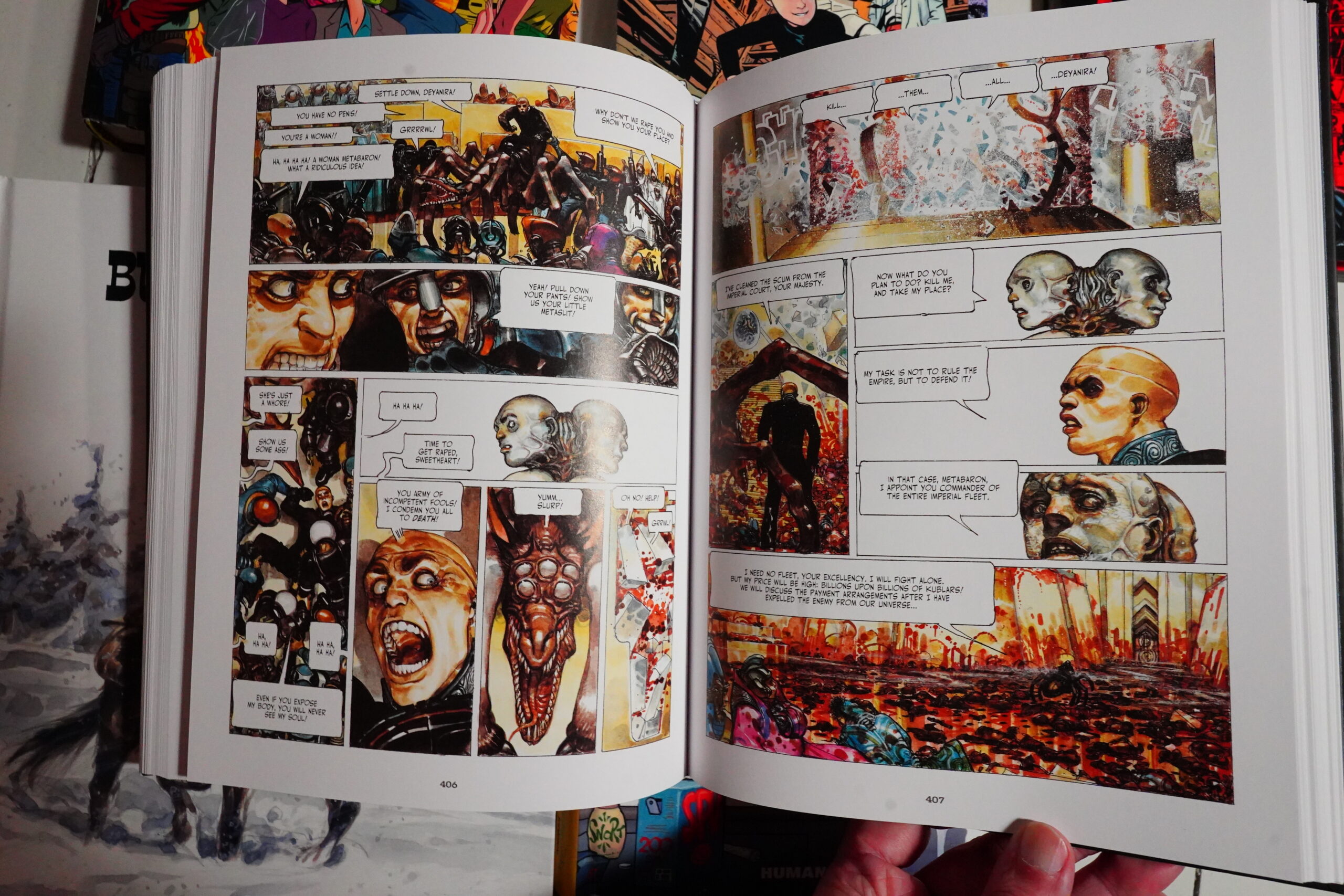Here’s some comics I’ve read over the past few weeks — they’re almost all pretty big collections of older stuff.
Over 7kg of comics! That’s 15 pounds for you (ex-)imperials.
As all people of a certain age, I read and loved (the first four) Incal albums by Jodorowsky and Moebius, but I’ve never felt tempted to try any of the other Jodorowsky albums “set in this universe”, because I’m not really much of a Jodorowsky fan. But I read an article that went through everything, and they said it’s all pretty bad except Before the Incal and Metabarons Cycle 1.
And Janjetov certainly tries his best at emulating Moebius.
When it comes to prequels, there’s always naysayers going “but we know he’s not going to die so what’s the point of reading these things!!!!” which is, I guess, a take. I think a fun story is a fun story, but I think the main problems with prequels is how to make the story mean much without distorting the original work. That is, John Difool was (as the name subtly suggests) a know-nothing schlub in the first Incal album, so how can he be having all these adventures where he reveals all the deep secrets about the society?
(Spoilers following after the next snap. Scroll past if you don’t want to know!)
Well, Jodorowsky has his mind wiped at the end of this collection.
*sigh*
That’s just so incredibly lazy and unsatisfying. And then he later walked back even that — at the end of Metabarons Cycle 1, he says that while he was writing the Incal sequel, he decided that everything that happened in the original Incal (as well as the bit where he got his mind wiped at the end of this thing) was all a dream! So presumably the sequel starts off after four fifths of this thing…
I dunno. Maybe it’s just me? Jodorowsky obviously wings it, and he doesn’t take these things seriously — he’s not like, a *yuck* nerd — but it just feels so *rolls eyes*.
That said, as a stand alone book, it’s pretty entertaining. Well. After the first album — the first album is crap. The rest is fun.
I’ve been reading these collections to learn French, and it’s been fun. I read most of these (in other languages) back when I was, like, 14, and it’s been fun reading them again.
Love the artwork.
This book collects the last four albums he did back in the 80s, before taking a decade off. And I’m guessing that he didn’t quite know where to take the series. The series started off with Buddy Longway building a cabin in the woods, before meeting Chinook, and then they married and we saw their children growing up — almost in real time. That is, after 20 years of the book, their eldest child was about 20 years old.
But the problem is, of course, how to write a book like this without it becoming a total bummer. Longway is a cool guy who tries to do his best, but he’s not really a “hero” hero, and often can do nothing by stand passively watching while the American soldiers genocides the Native Americans.
So I was wondering whether he was going to pull off this ending — and he totally did. It’s very moving and heartfelt and somewhat hopeful, despite everything.
And next up, I’m going to read the final collection, which collects the four albums he did a decade later.
This thing collects everything Marvel published in 1961…
… which is the year they published Fantastic Four #1. But as you can see here, it’s mostly Archie rip-offs (but set in a fashion setting), western comics, and monster comics. And a couple of romance comics.
It’s… it’s… it’s easy reading? I can’t really say that there’s anything particularly good here, but it’s surprising to see Don Heck drawing in this style. He was pretty good.
The median length of these stories is about five pages, which gives no room for characters to develop, or even good jokes. It’s just plot plot plot next.
It’s not downright bad, though? I’ve certainly read a lot worse comics from this time. It’s competently done.
But very, very repetetive.
I did like Al Hartley’s artwork. It often looks pretty wonky (probably done in a hurry), but it’s quite attractive.
I got a little stack of these Free Comic Book Day comics…
… and they are, like always, pretty naff.
I’d have thought the way to entice people to read your book would be to give people a fun read, but instead they mostly all read like prolonged ads, ending after six pages with “to be continued…”
It’s just a slog to wade through this.
This, on the other hand, was unexpectedly fun.
And with pretty good artwork.
But as with all modern Marvel comics, it ends before it really gets a chance to develop into anything. This collects the 15 issues from this iteration of the series, and it stops just when you think that things would start developing.
Because the creators successfully set up a fruitful new status quo, with a handful of different, fun characters, and in a milieu that naturally allows fun stories to develop. And that’s what successful serial superhero comics do: Not do endless origin stories, or This Big Shattering Storyline That Will Change Everything Forever, but establish an environment where stories, characters and jokes thrive in. And they did that here, but then: The End.
Yes, this was the other Jodorowsky book that was recommended.
And it’s a lot weirder than the Incal book — it’s the story of the Metabaron dynasty, with about one album per ancestor.
And it’s a very jokey series — it’s told from the point of view of two bickering robots, where one is telling the story to the other.
It’s just… it’s so Jodorowsky. I mean, Gimenez is probably driving the proceedings, I’m guessing — he gets to draw all the stuff that he likes to draw, and he does it so well. But the stories are endless torture, killing and (threats of) rape. But the most annoying thing is how small everything is. I mean, Jodorowsky makes everything Huge, So Huge — it’s always one galaxy attacking another, or one universe attacking another, but it’s like “he didn’t like to go to The Wild Galaxy, because it’s always raining acid there”, and “the Hospital Planet ground to a standstill while taking care of the Metabaron’s baby” etc etc. That is, while he’s using Big Words, it always seems like everything is really happening in a minute village.
But for Jodorowsky all this is a lark — he’s not a nerd, and he’s making fun of super-duper-cosmic sci fi, so it doesn’t really mean anything.
Is it any good? Eh. It didn’t really feel like an optimal way to spend all this time reading this whopper of a book, and I certainly won’t read any more of this Jodononsense.
But I guess it’s successful?
